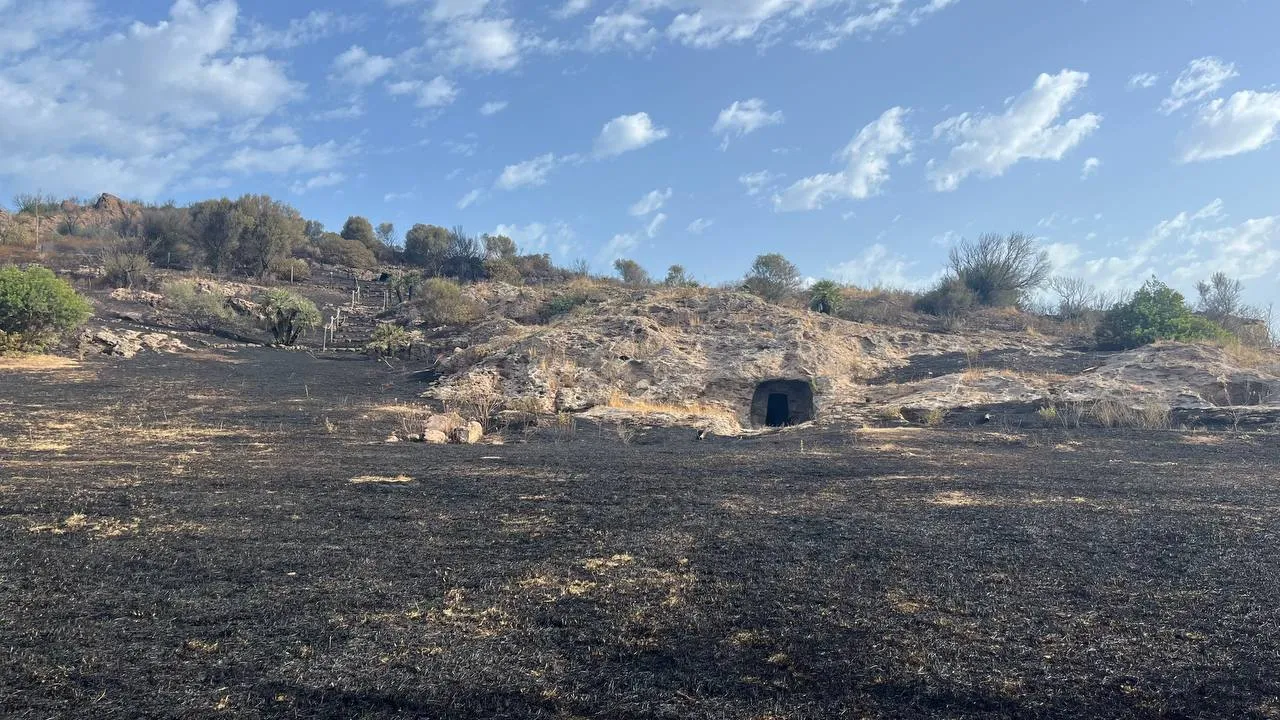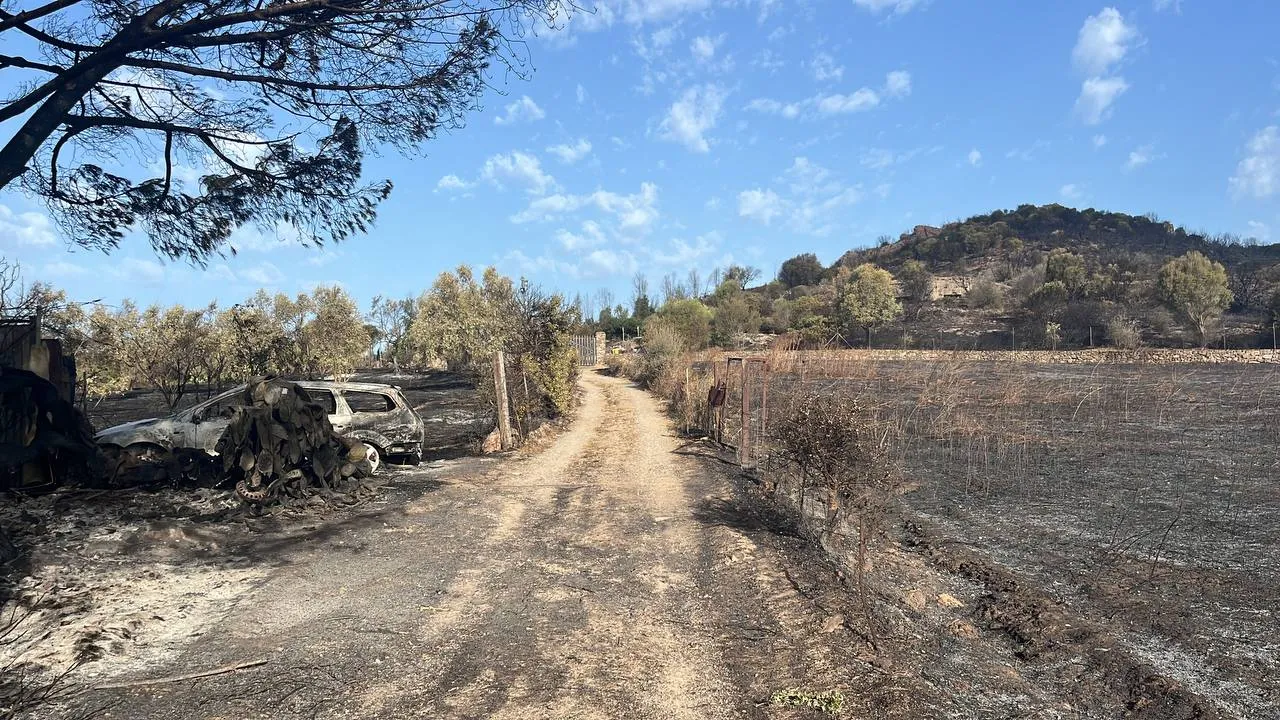
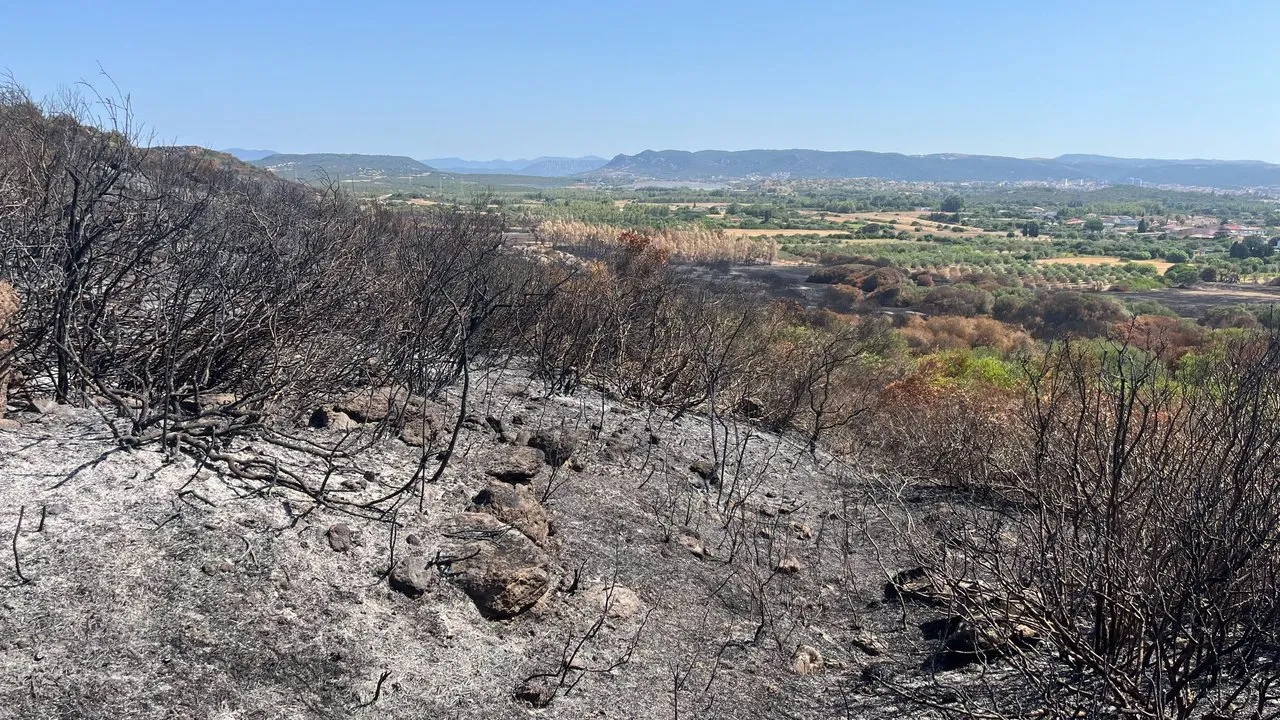
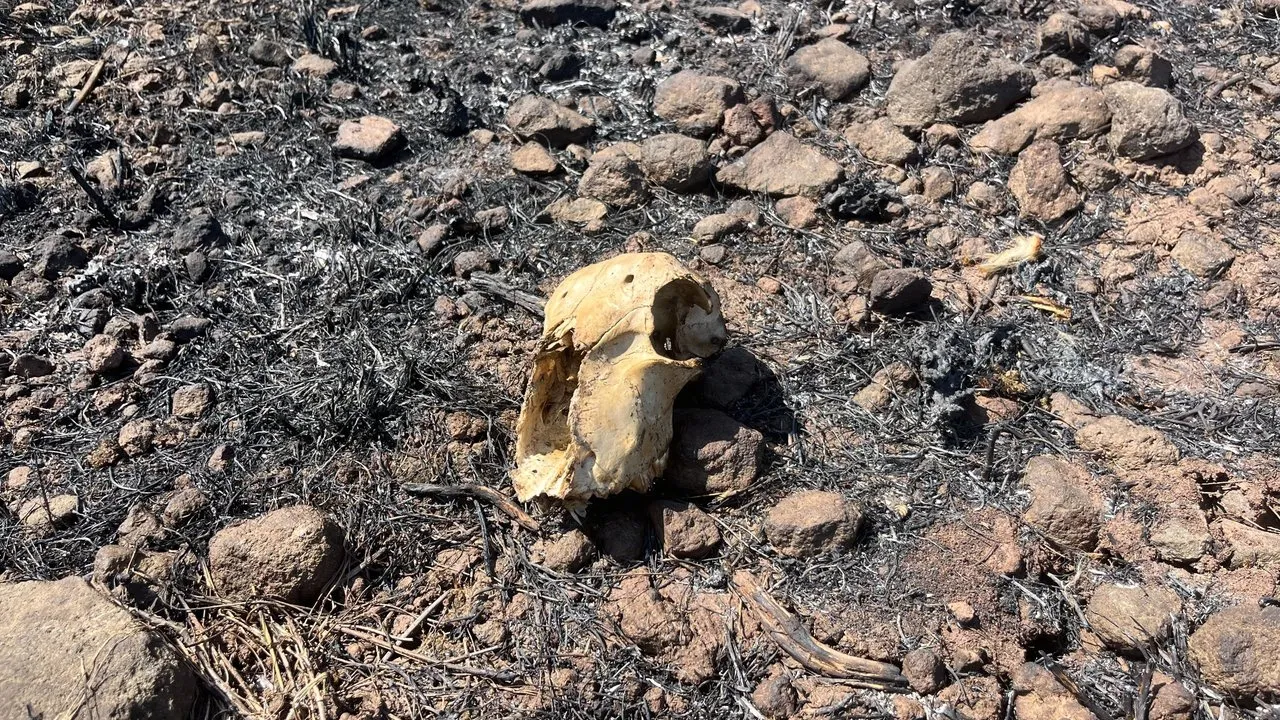
Ciao, people of HIVE!
I'm back to tell you about Sardinia again. Even though I don’t have much time to write, my new job (as a journalist for the regional television network) allows me to travel often around my area to discover new places, meet people, take photographs and live unique experiences that I wouldn't normally have.
It was in this context that, these weeks, I found myself documenting the chaos of some fires that devastated the place where I live.
Fires are a constant and very serious problem for Sardinia during the summer, especially considering that the island, due to scarce rainfall, already suffers greatly from drought. One well-known truth is that a very large majority of these fires are intentional — deliberately started by someone, with the specific purpose of destroying what is around and put everyone in danger. This is evident from the fact that these emergencies always occur on days of strong wind, when the mistral blows fiercely from the sea.
Some do it out of boredom or a twisted obsession, but there are also farmers who use fire as an extreme method of “resetting” the land, since the ash left behind is rich in nutrients that make the soil more fertile.
Of course, this is done with no regard for the common good, for safety, and certainly not for the lives of the poor animals that inhabit the woods or the hills covered in evergreen shrubs: foxes, hawks, owls, wild boars, snakes, bees, turtles, rabbits and hares… some of them manage to escape but, sadly, others do not. Unfortunately, the people responsible for these fires are never found or imprisoned for their crime.
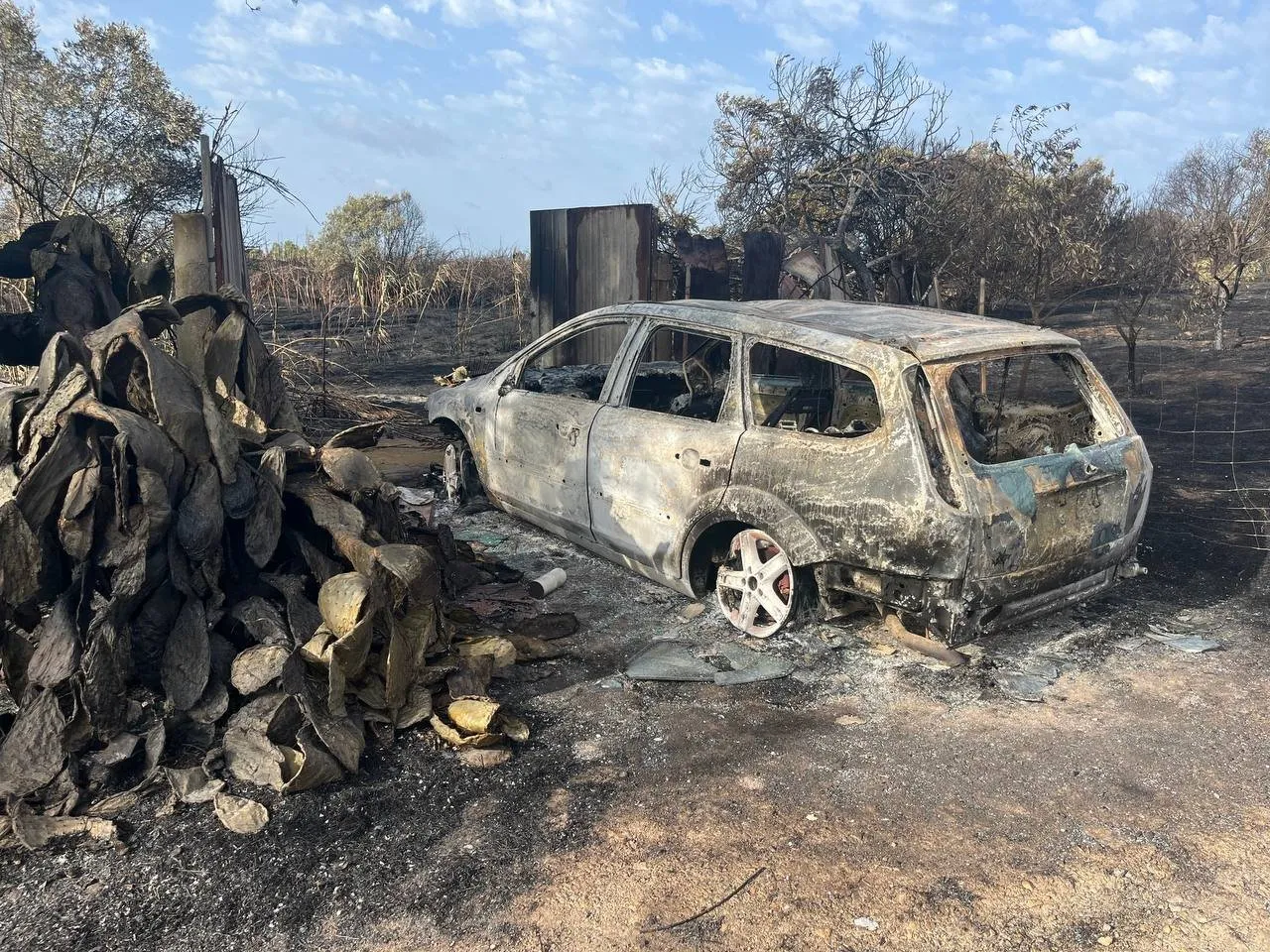
The first great fire of this season happened on 18 June.
That day had been passing quietly: I had finished my daily work and was sitting on the terrace jotting down some notes for my novel. Suddenly, I smelled a strong scent of burning in the air, and when I turned I saw a column of smoke rising from the hill.
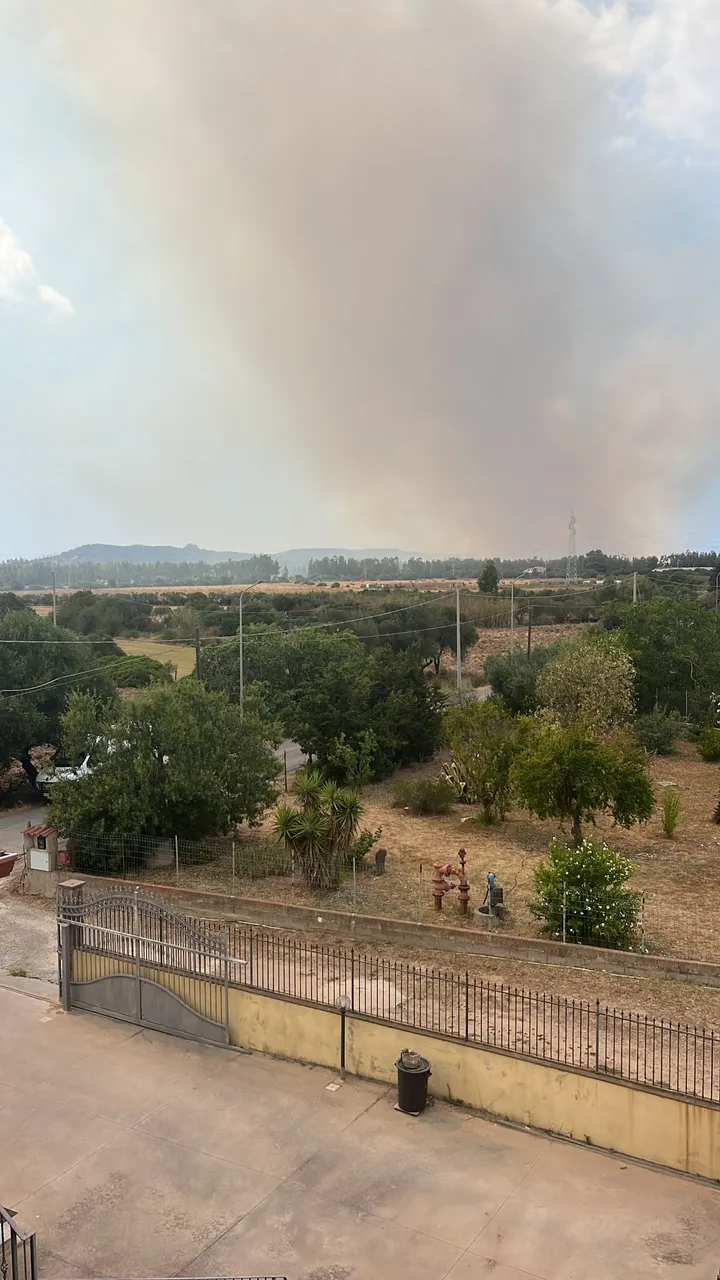
I immediately went to the site by bicycle to avoid blocking the road for the police, civil protection and firefighters who were constantly passing by. However, the air was unbearable, and it was a tiring journey.
When I arrived, I interviewed the mayor in the square, and then I approached the fire to shoot some videos for the news. One of the advantages of being a journalist is that, in these situations, you can pretty much enter anywhere, and indeed, I faced no obstacles. In particular, I met Mr. Sulas, an elderly widowed farmer whose land had been partially burned. He let me in and took me all the way to the hill. It felt like being in hell, with the grass burned, the trees charred and smoke rising everywhere from the ground.
I didn’t take too many photos because I was busy with my work; once I got home, still smelling of smoke, I sat on the terrace and edited the video, which aired on the 7:00 PM news. Then I took a shower and relaxed, and by eight in the evening, the emergency was over: the roar of the planes was no longer heard, and the smell of smoke still covered the countryside like a light veil.
The next day, with a friend, I returned to the hill by bicycle to take a tour and assess the damage caused by the fire. By coincidence, we met Mr. Sulas again, who let us into his property and accompanied us almost to the top of the hill. I’ll show you the photos, which speak more than a thousand words.
Mr. Sulas was extremely kind, and he was the good, romantic and human part of this story.
He welcomed us into his home, showed us his land and his animals, and shared his story. He told us about his experience as a farmer, one built on wisdom gained over a lifetime. This is not the first fire he’s seen on his land: in his seventy years at the foot of this hill, the fire has taken many things from him — plants, fruits, even animals. But he takes it all philosophically, with a smile, despite the sorrow.
«I’m happy because it could have been much worse. The fire stopped just before the henhouse», he told us. «I had to flee, and I couldn’t do anything for my animals. If the flames had gone further, just few meters, my animals would have been burned alive».
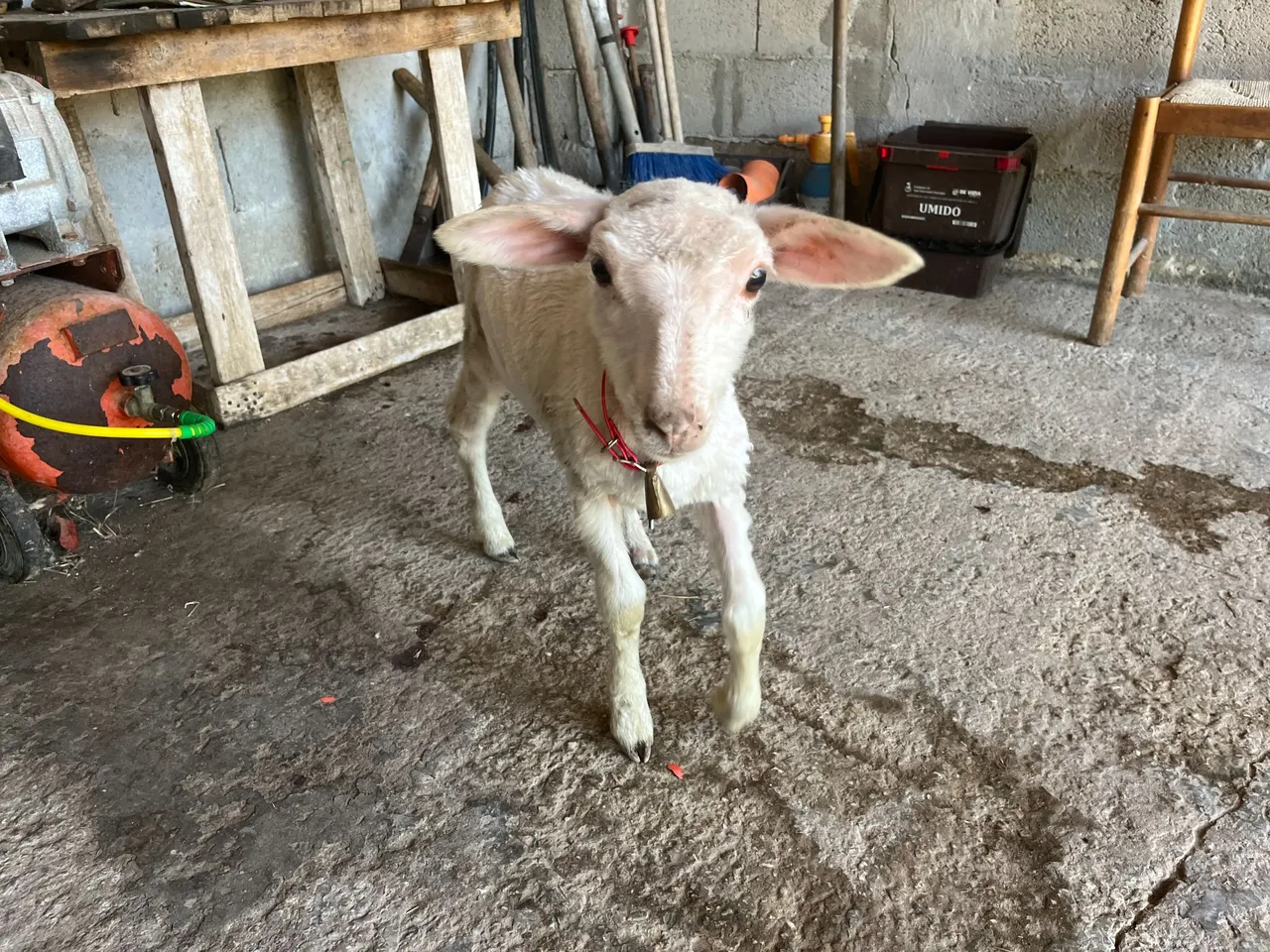
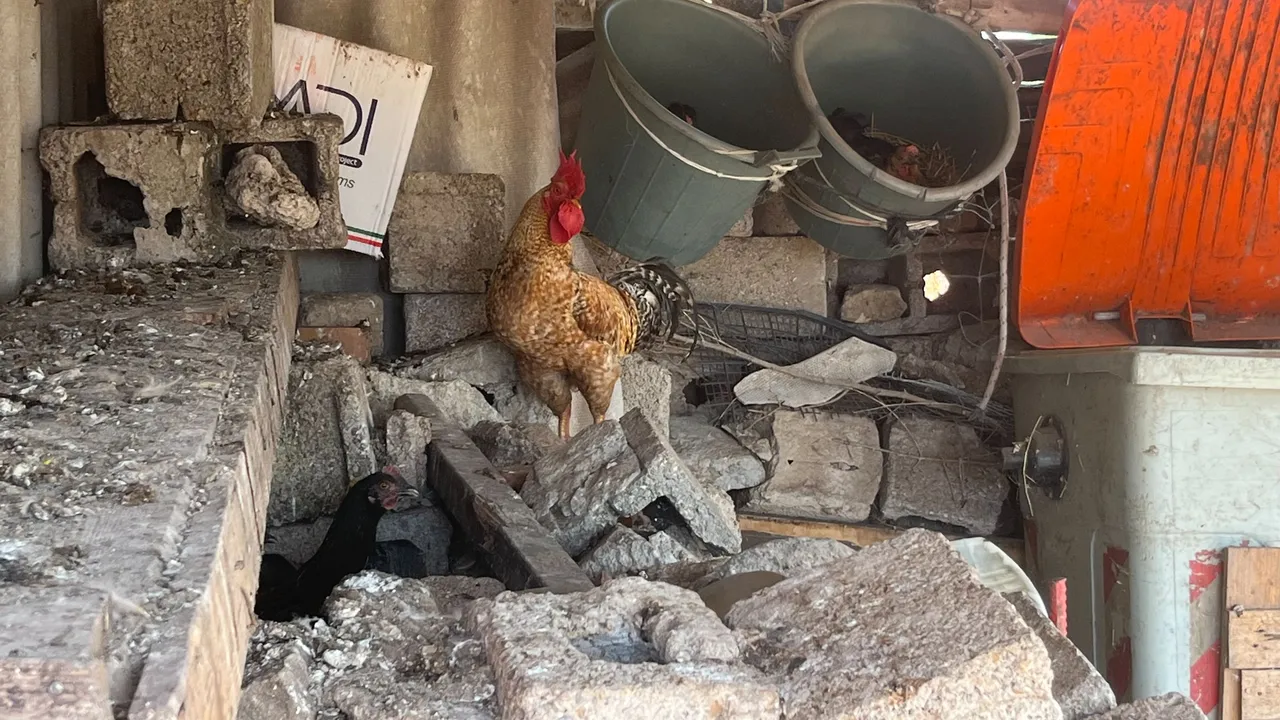
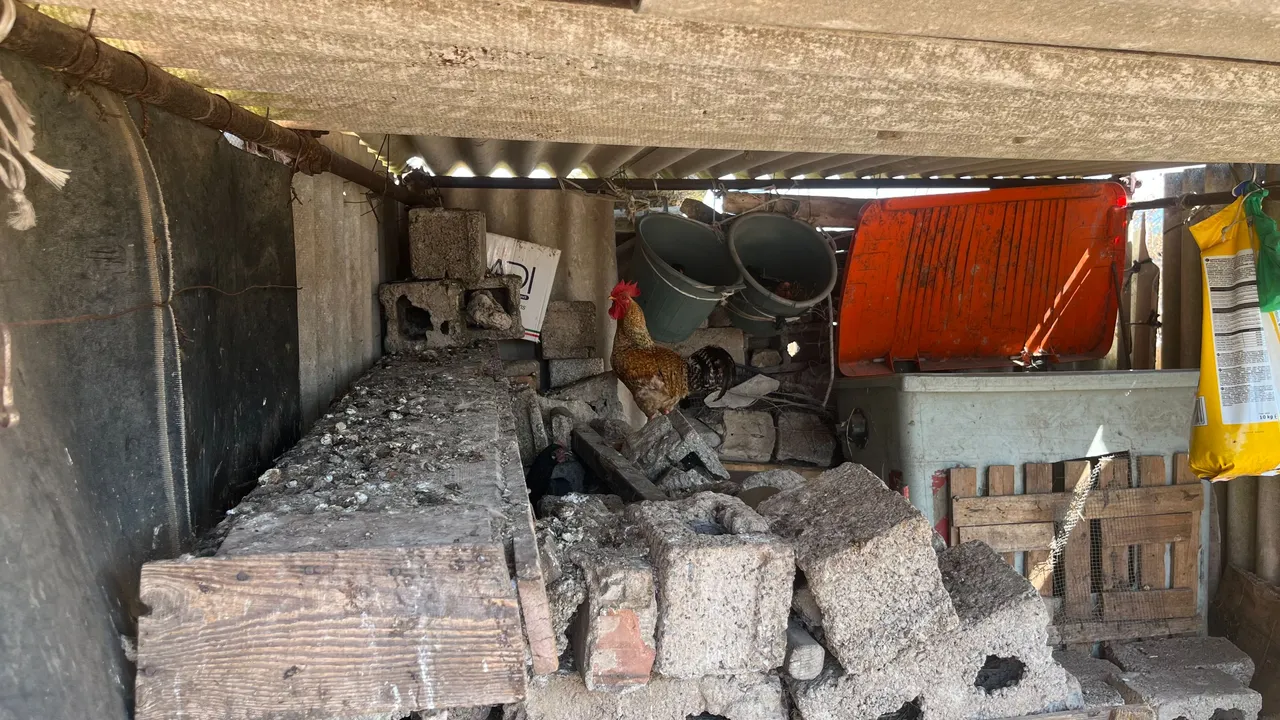
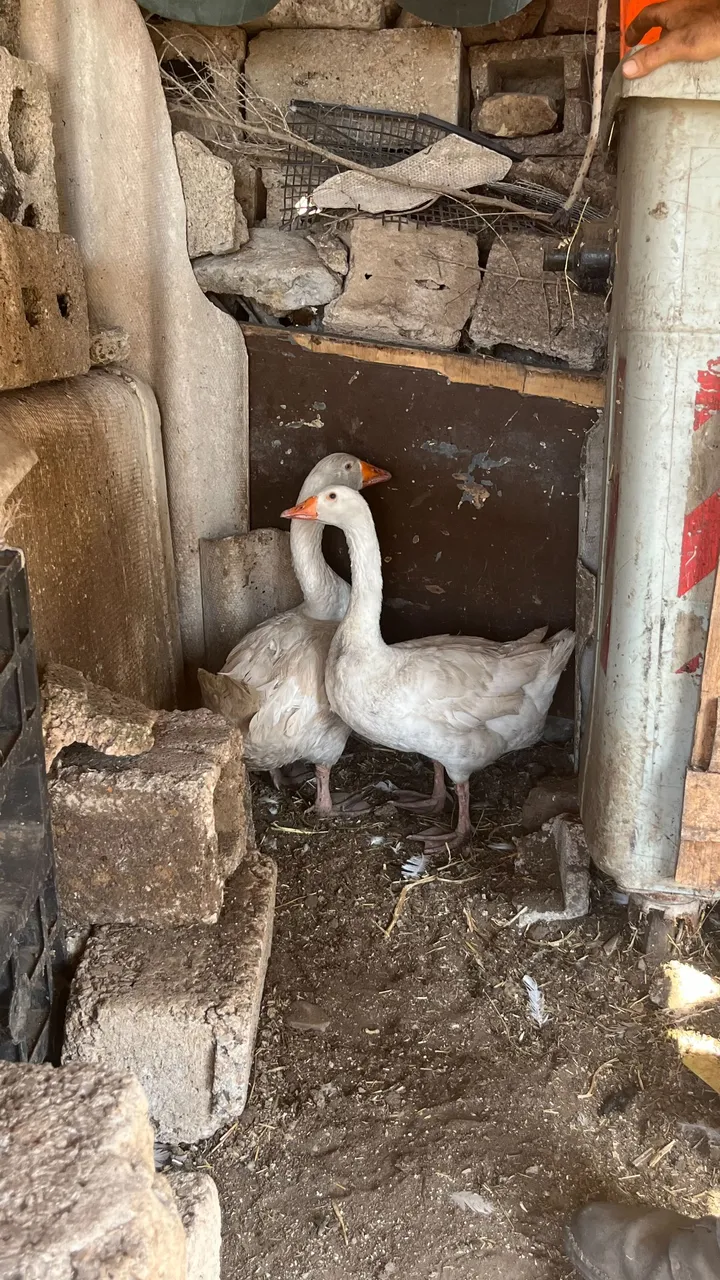
Climbing the hill, I really had the impression of going to hell. Everything was black, covered in ash; it was as if all the colors had been stolen from our world. But there was still color in the blue sky, in the white clouds, in the green of the surviving trees... and above all, there was color in the distant landscape, in the contrast between what had died in the fire and what had survived elsewhere, in a happier world.
The contrast between the area of the fire and the pristine landscape in the distance was truly heartbreaking.

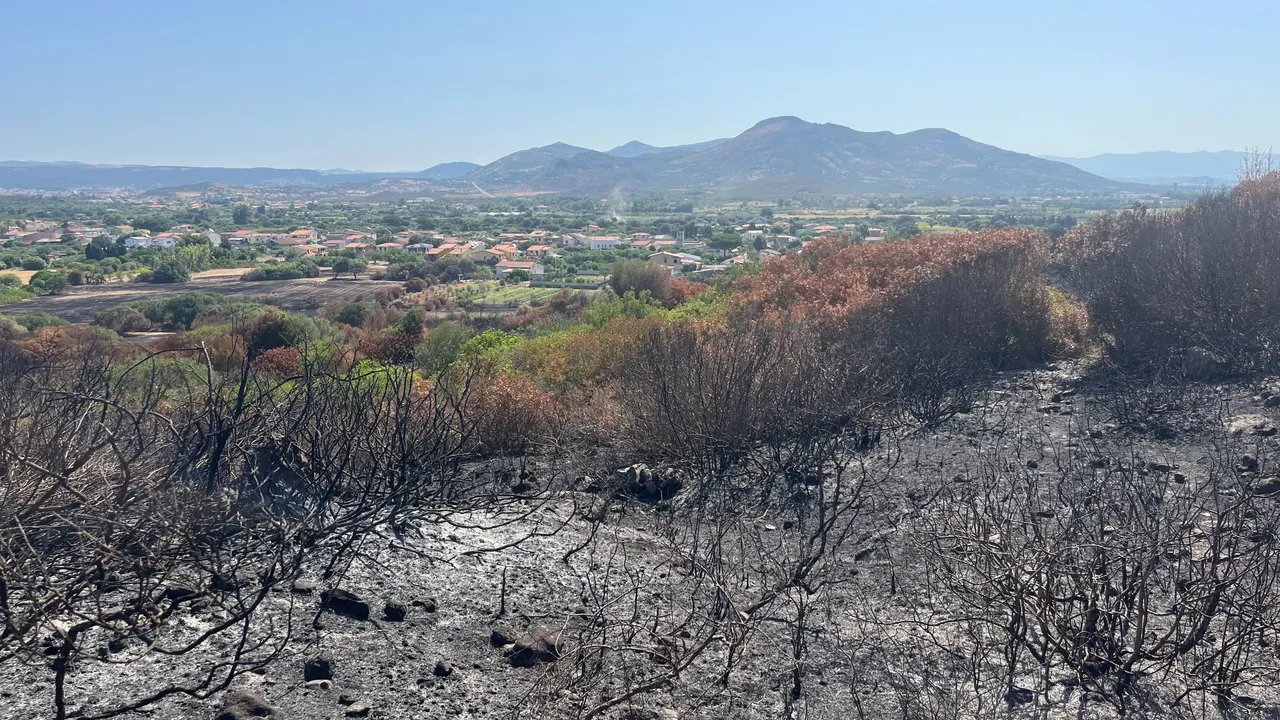
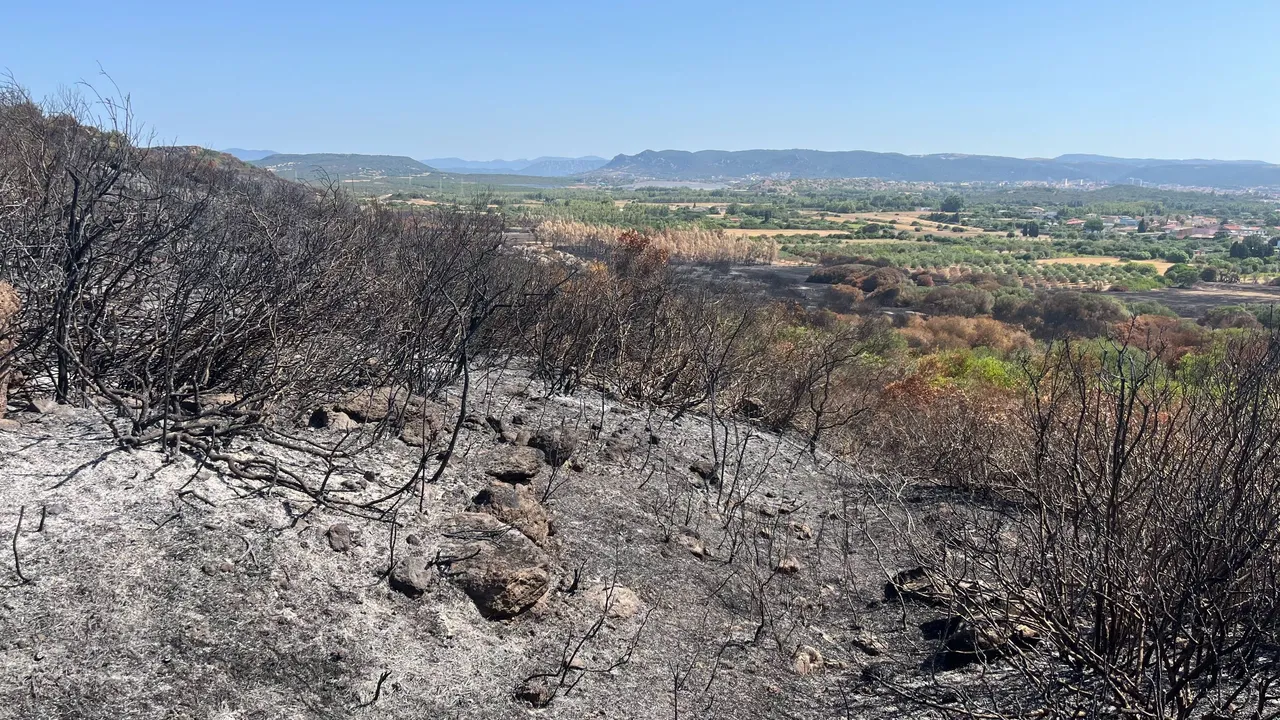
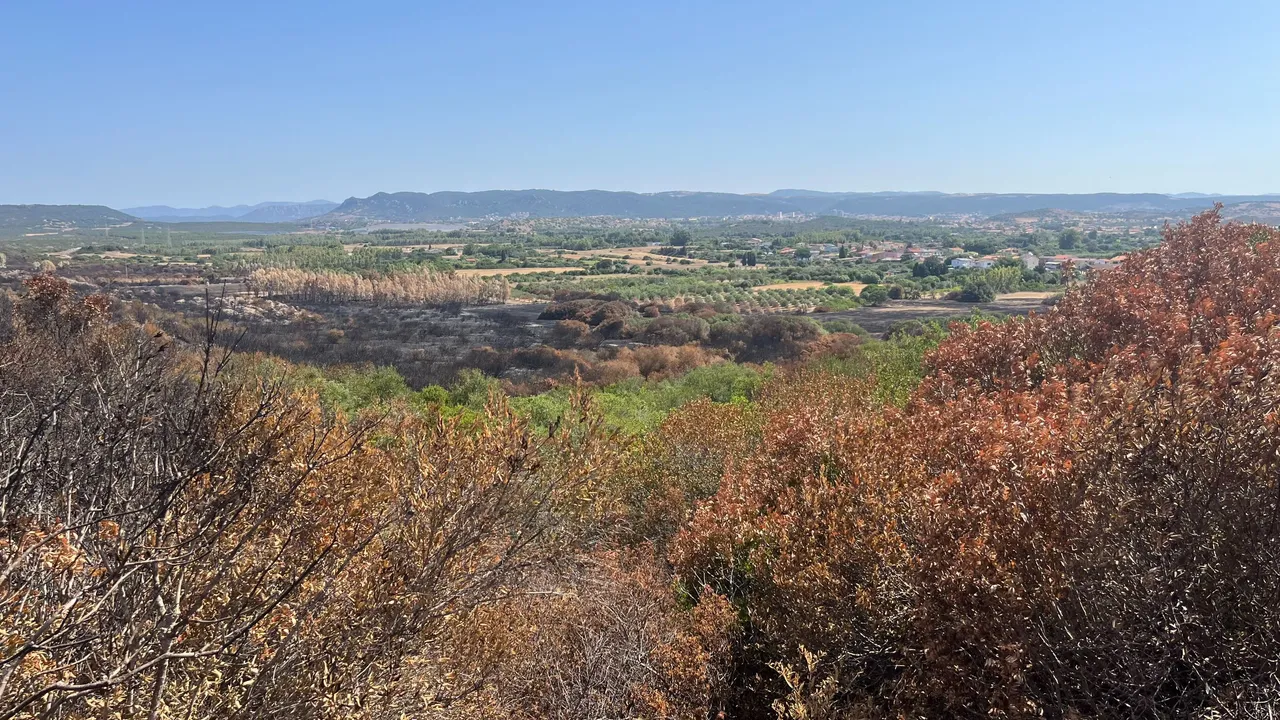
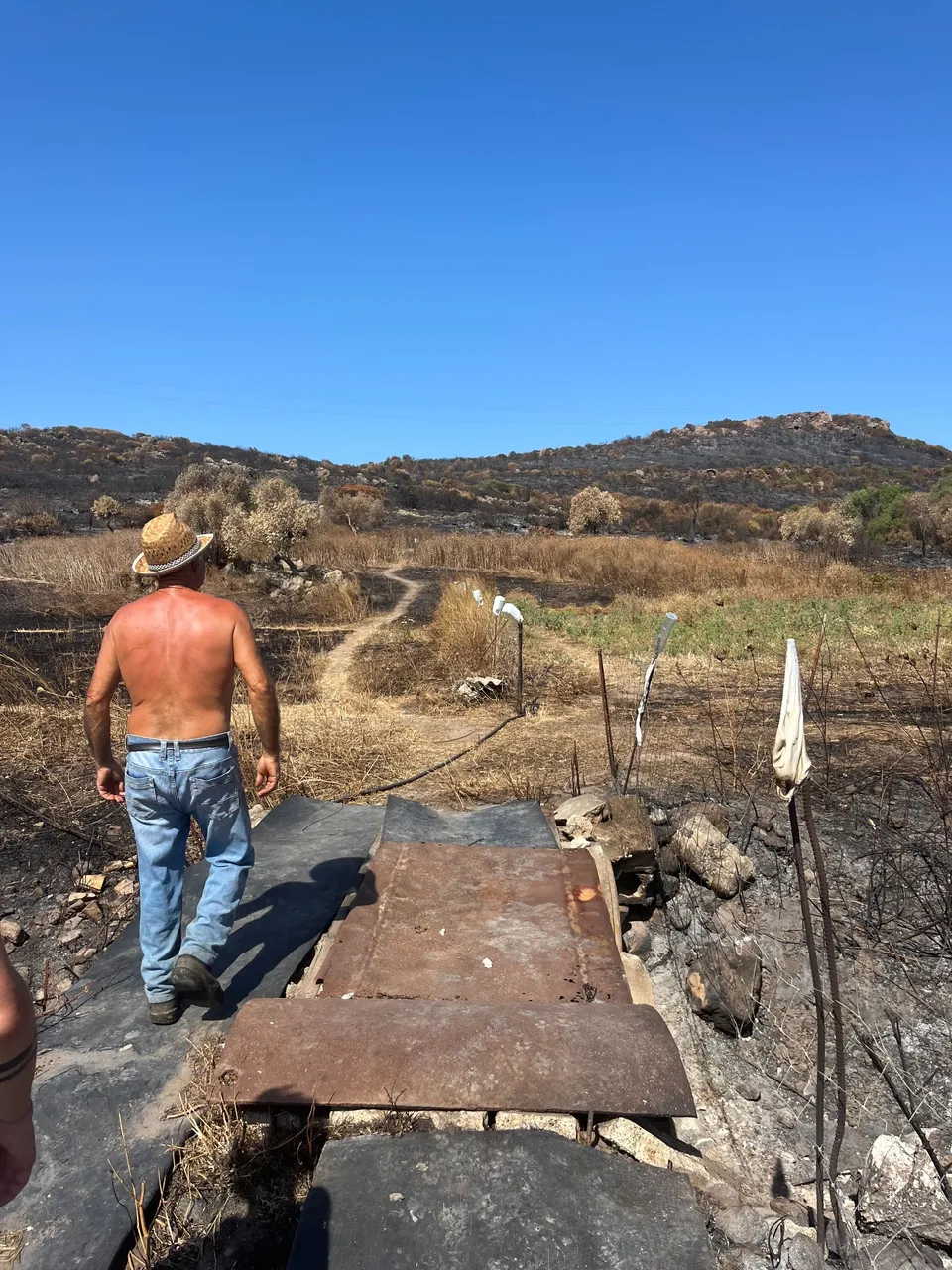
Mr. Sulas leading us towards the hill.
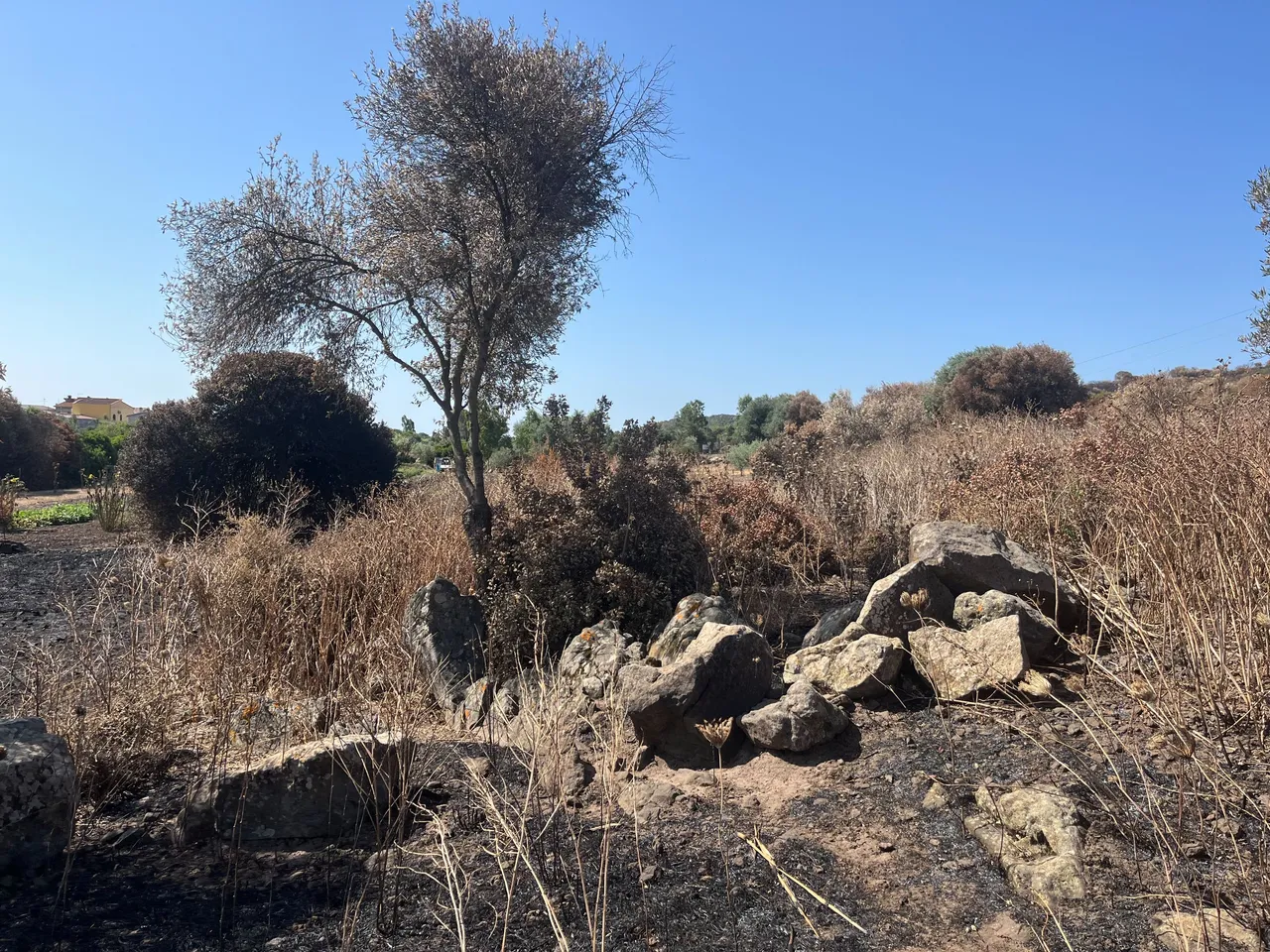
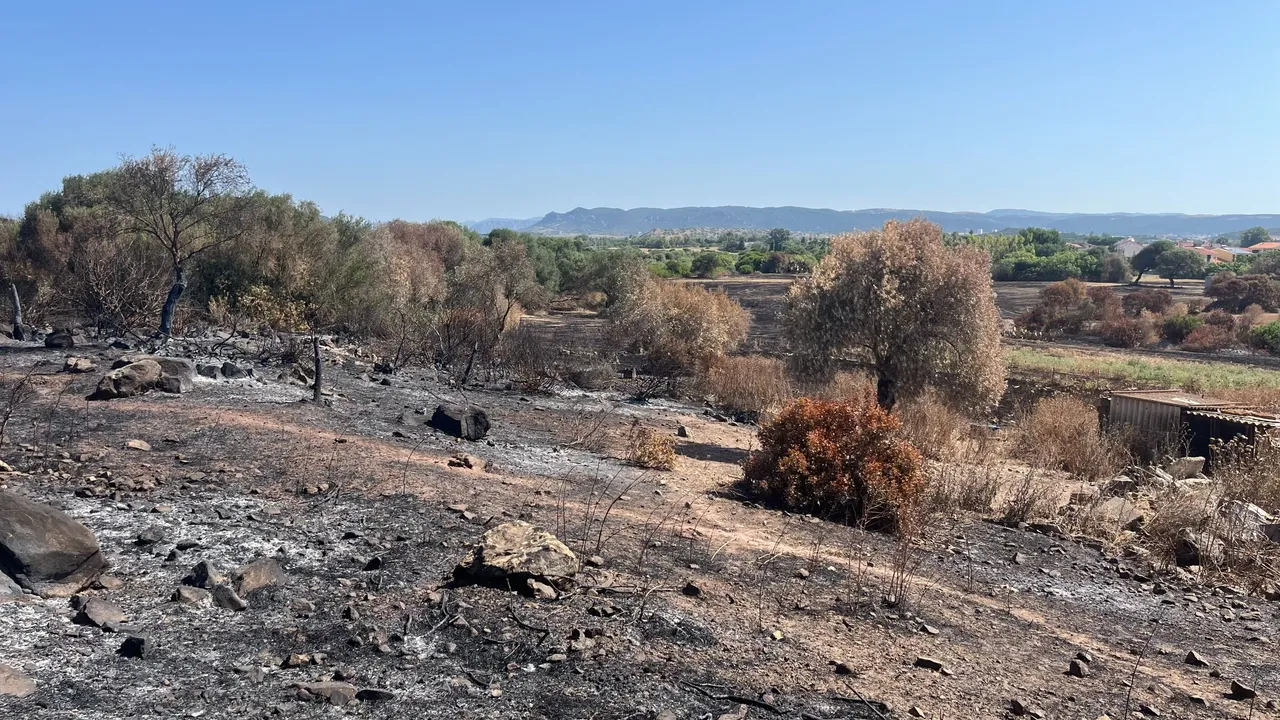
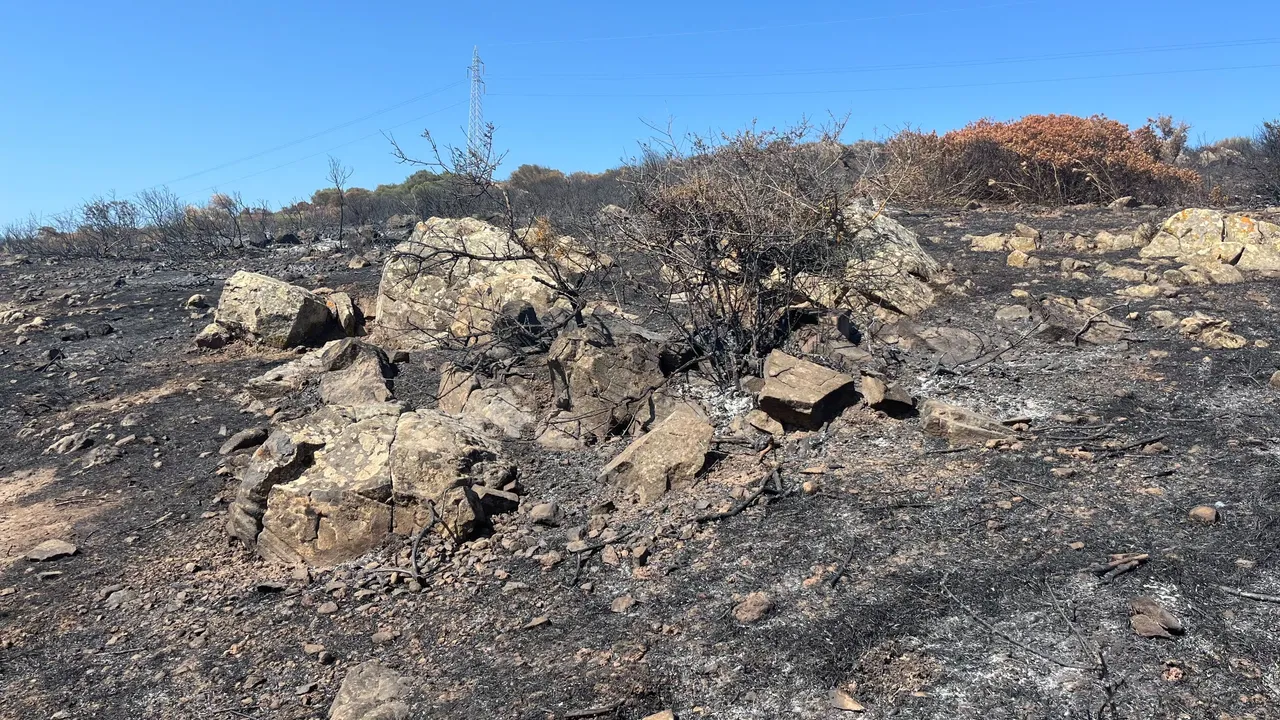
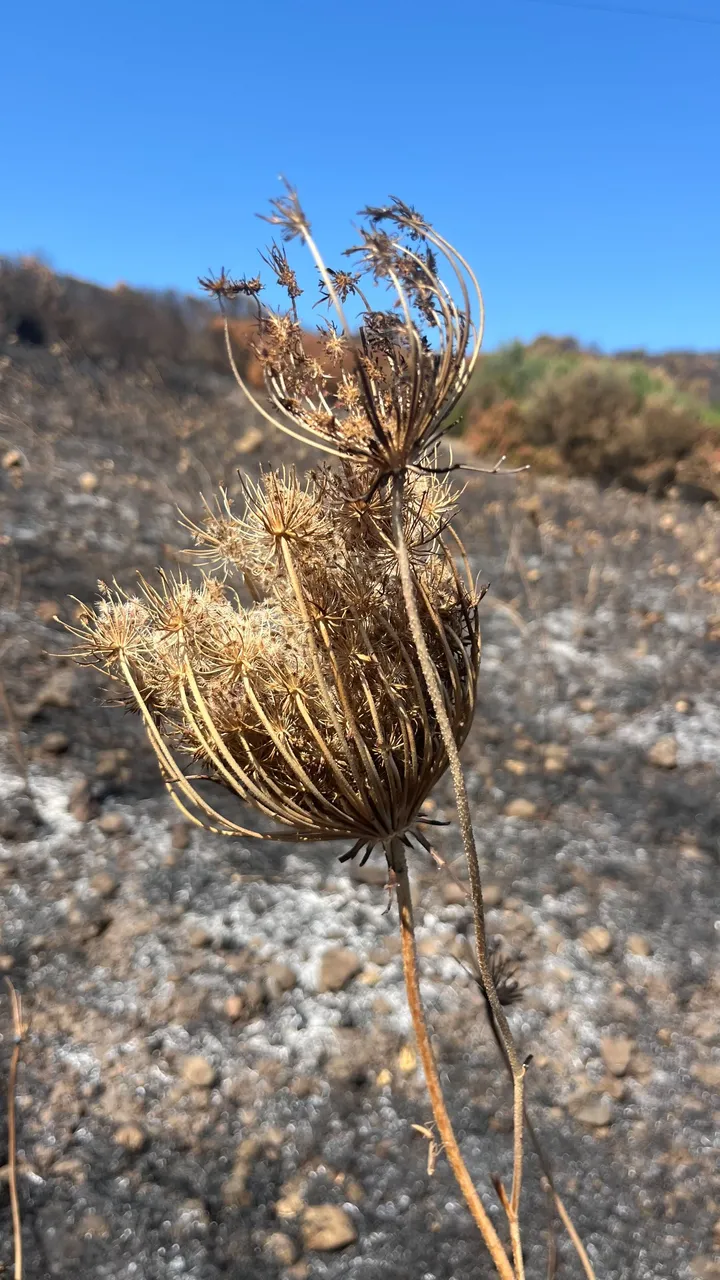

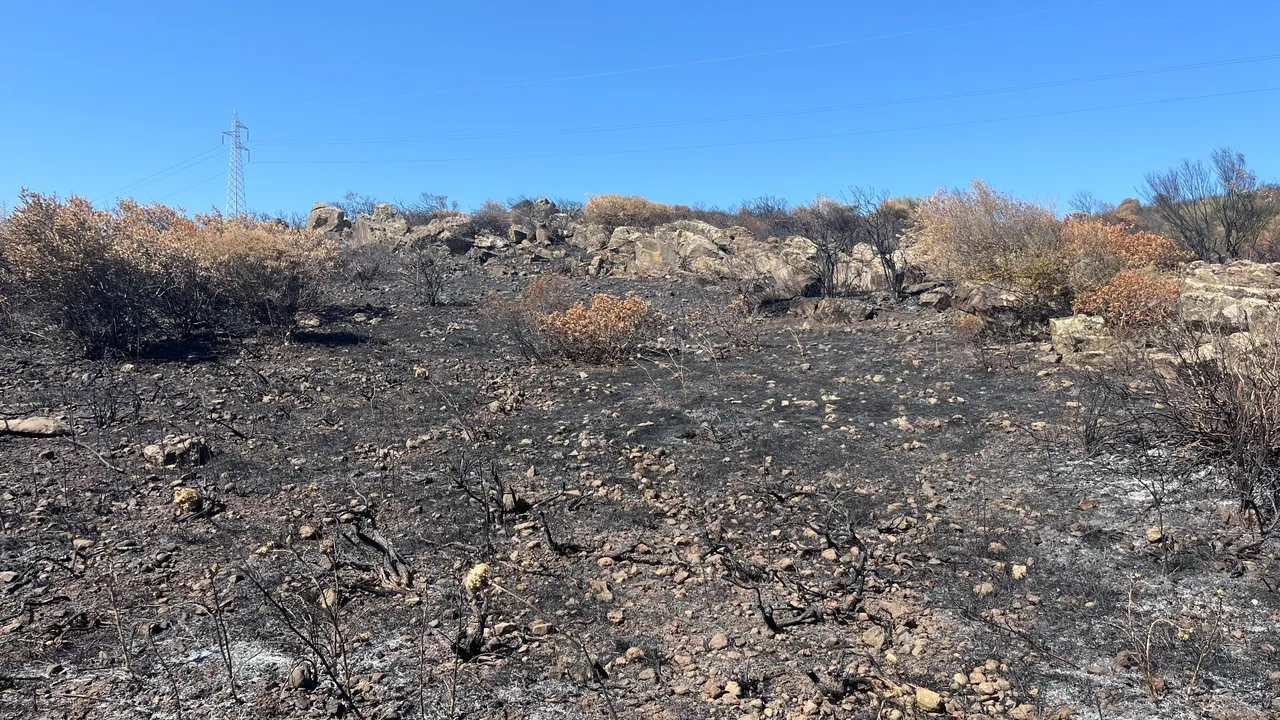
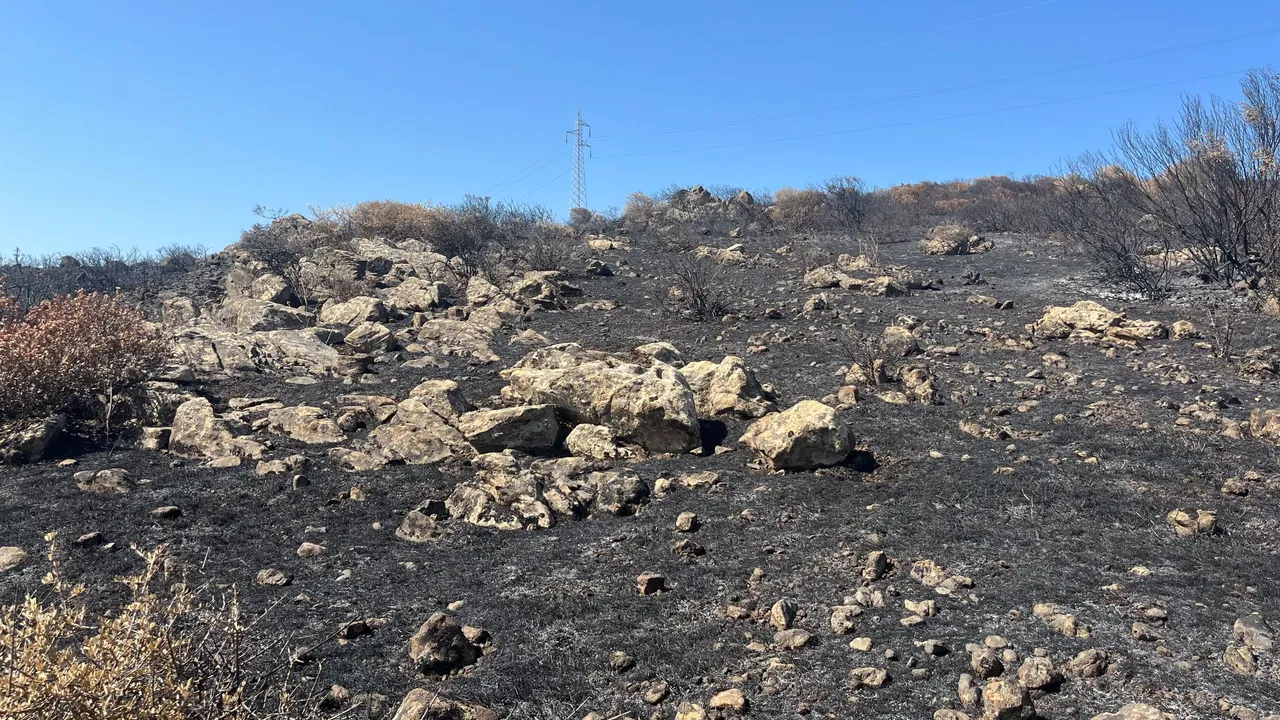
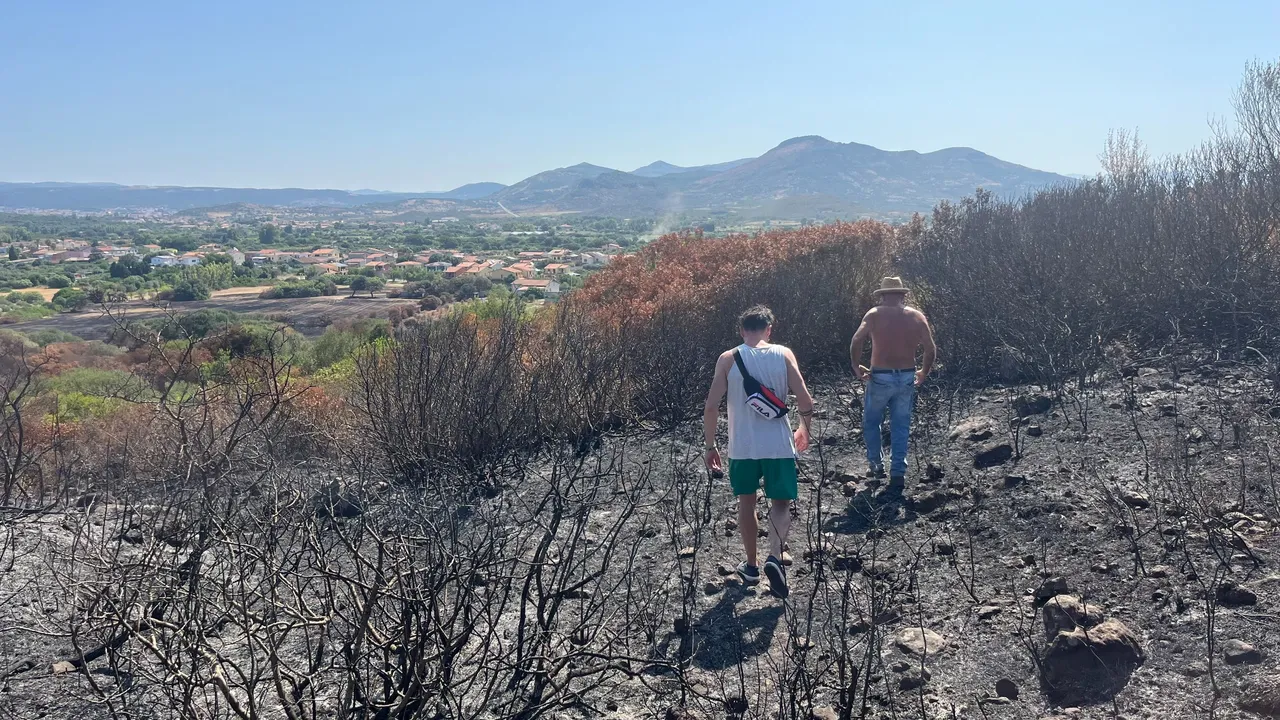
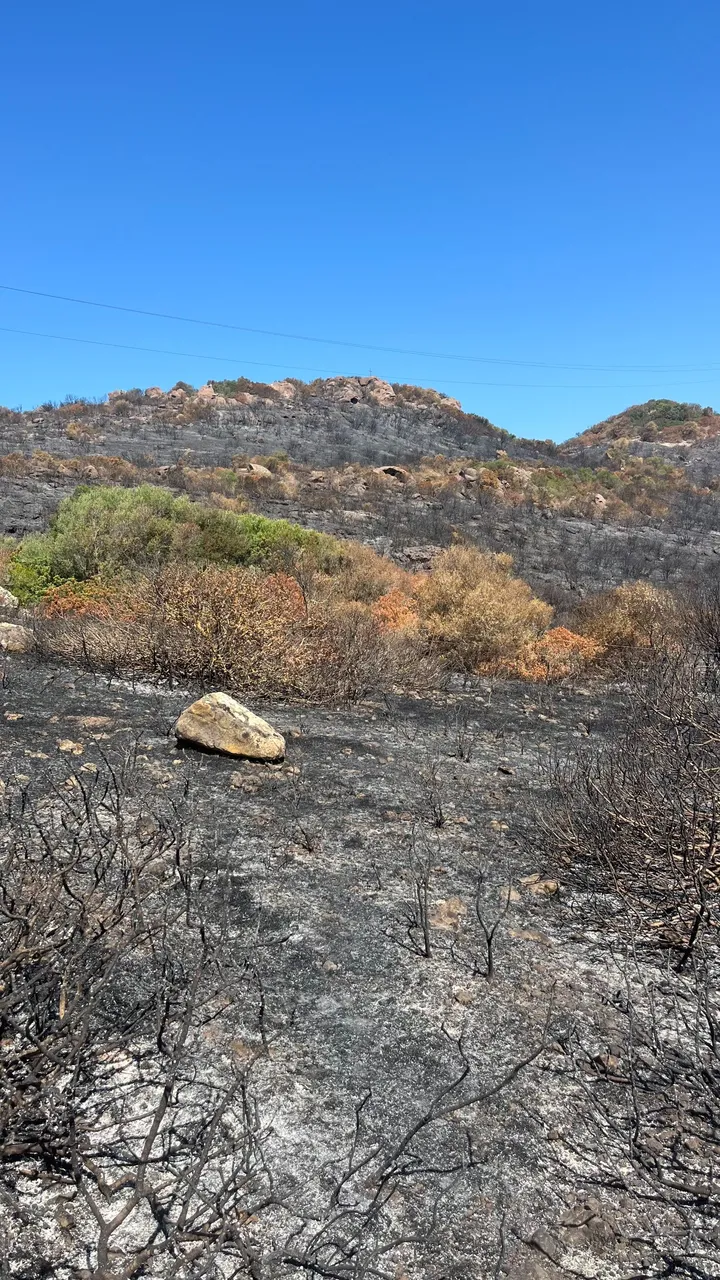
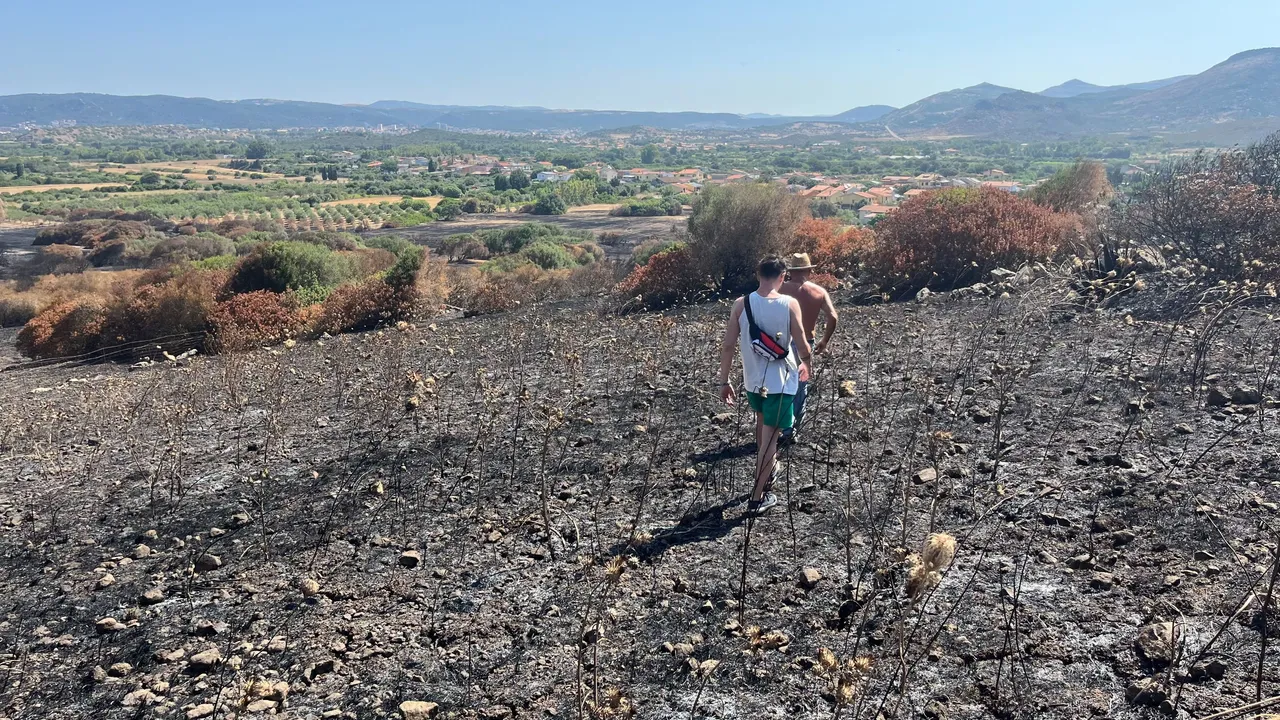
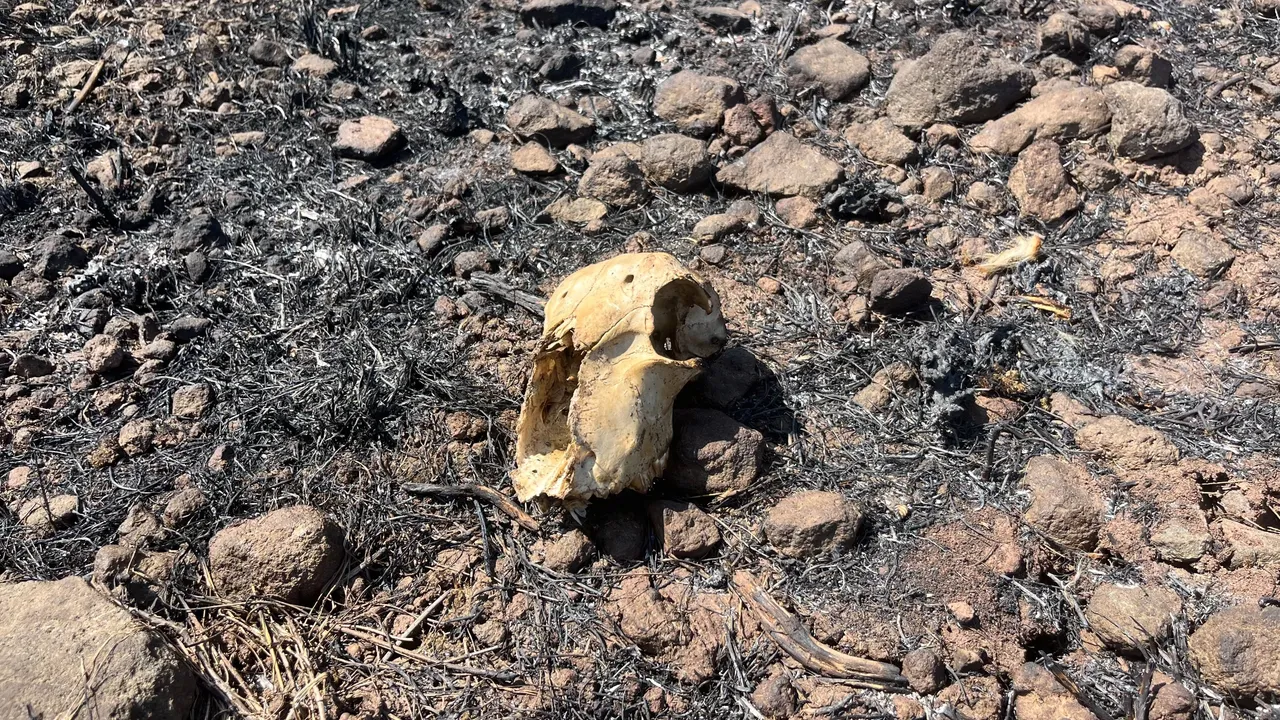
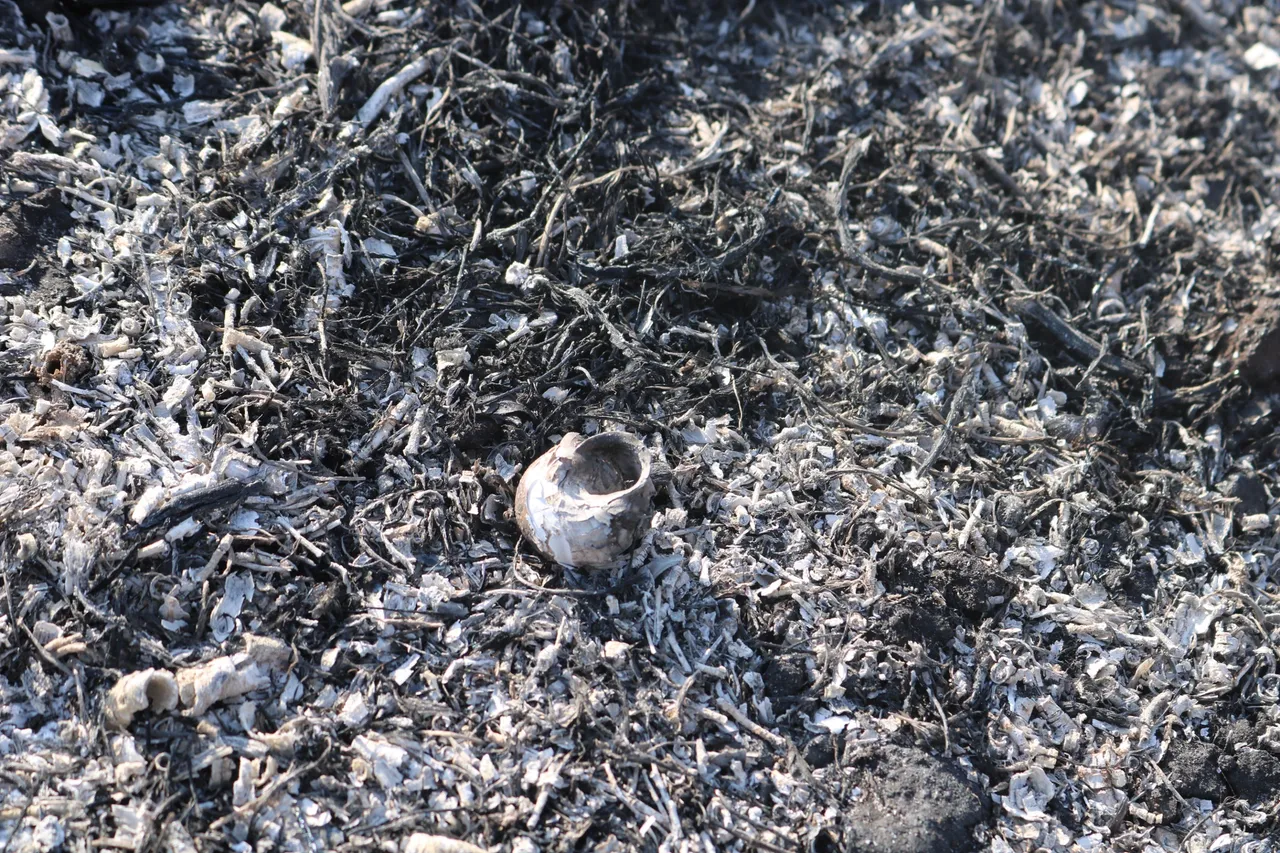
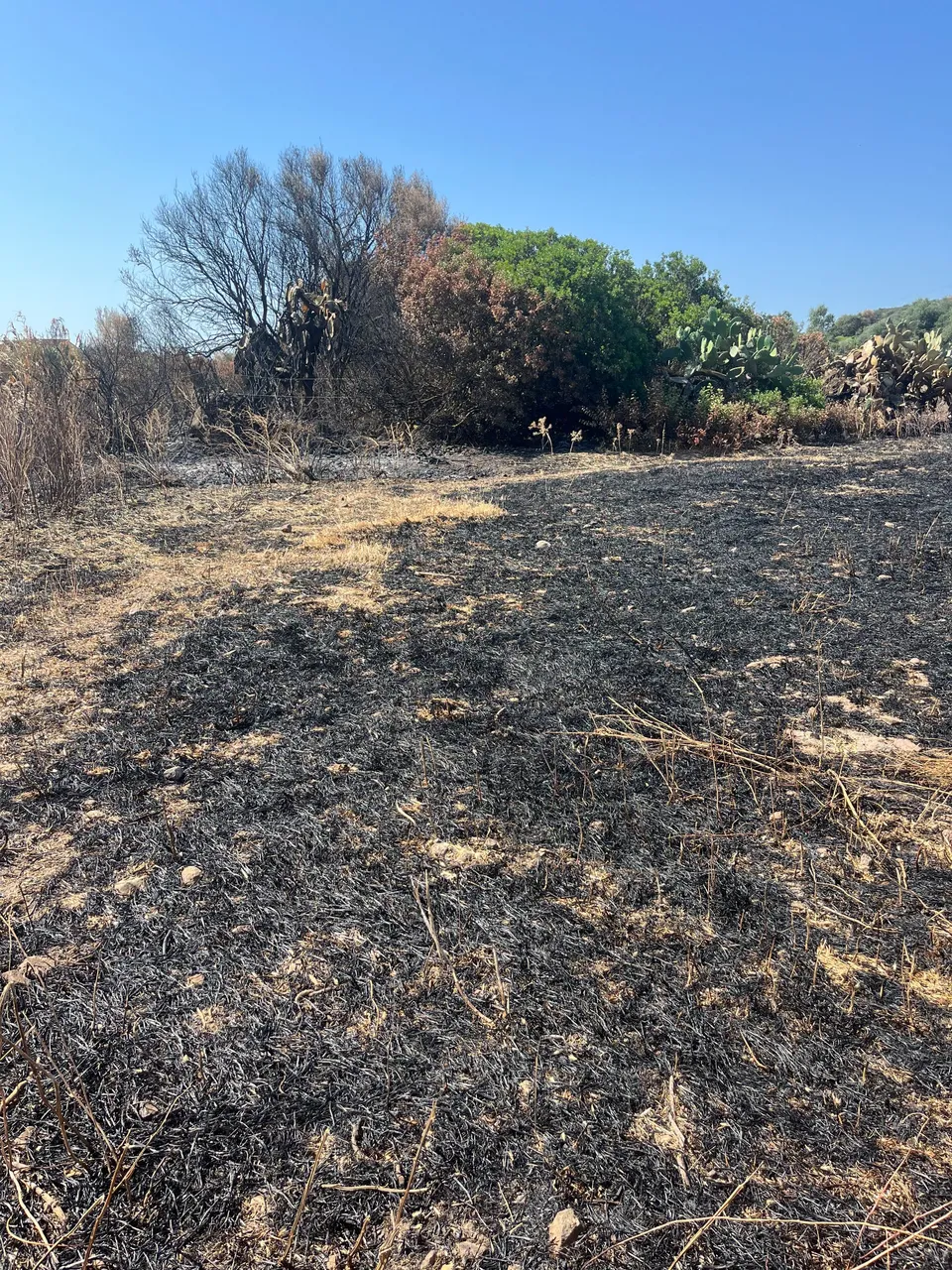
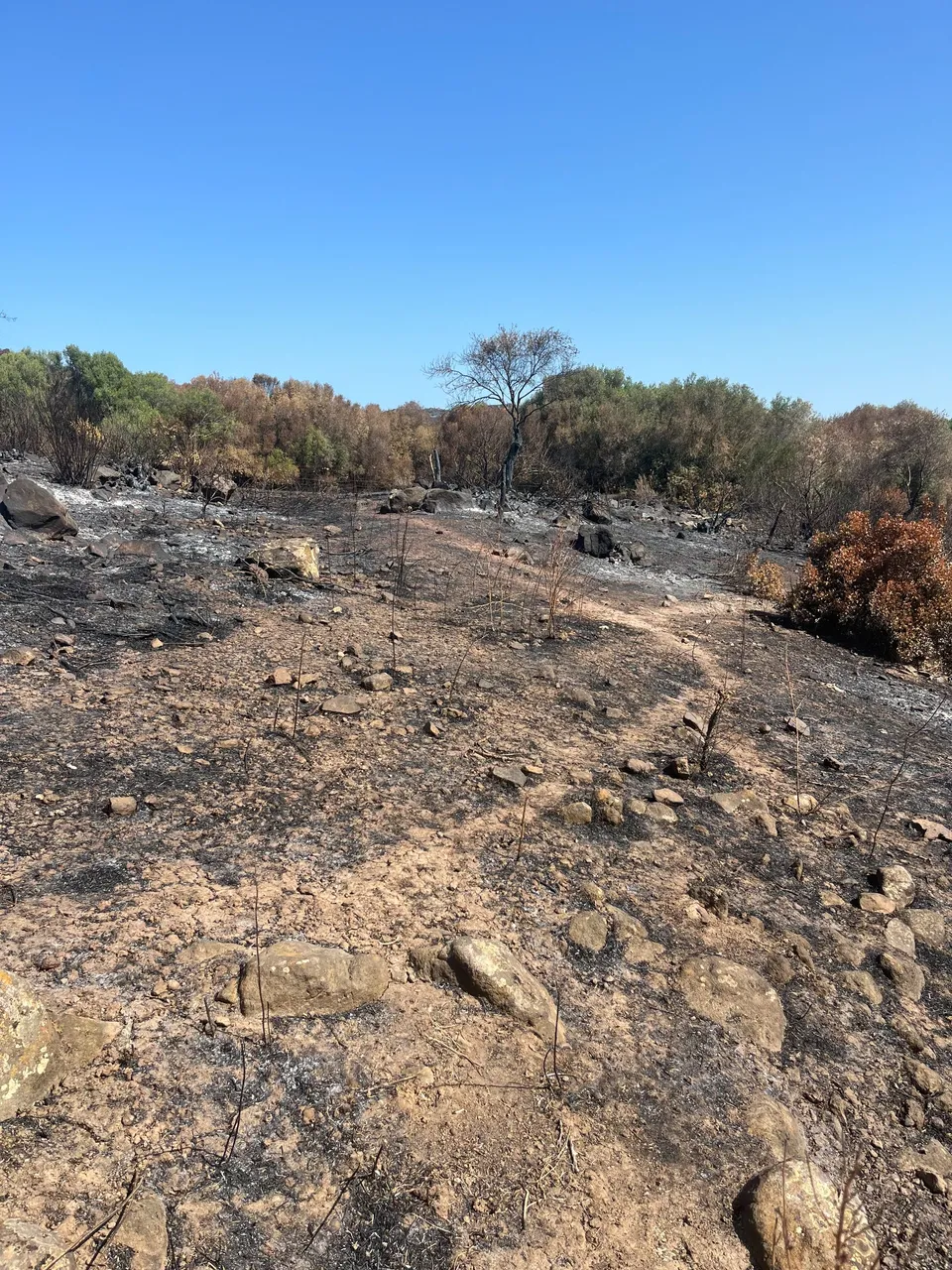
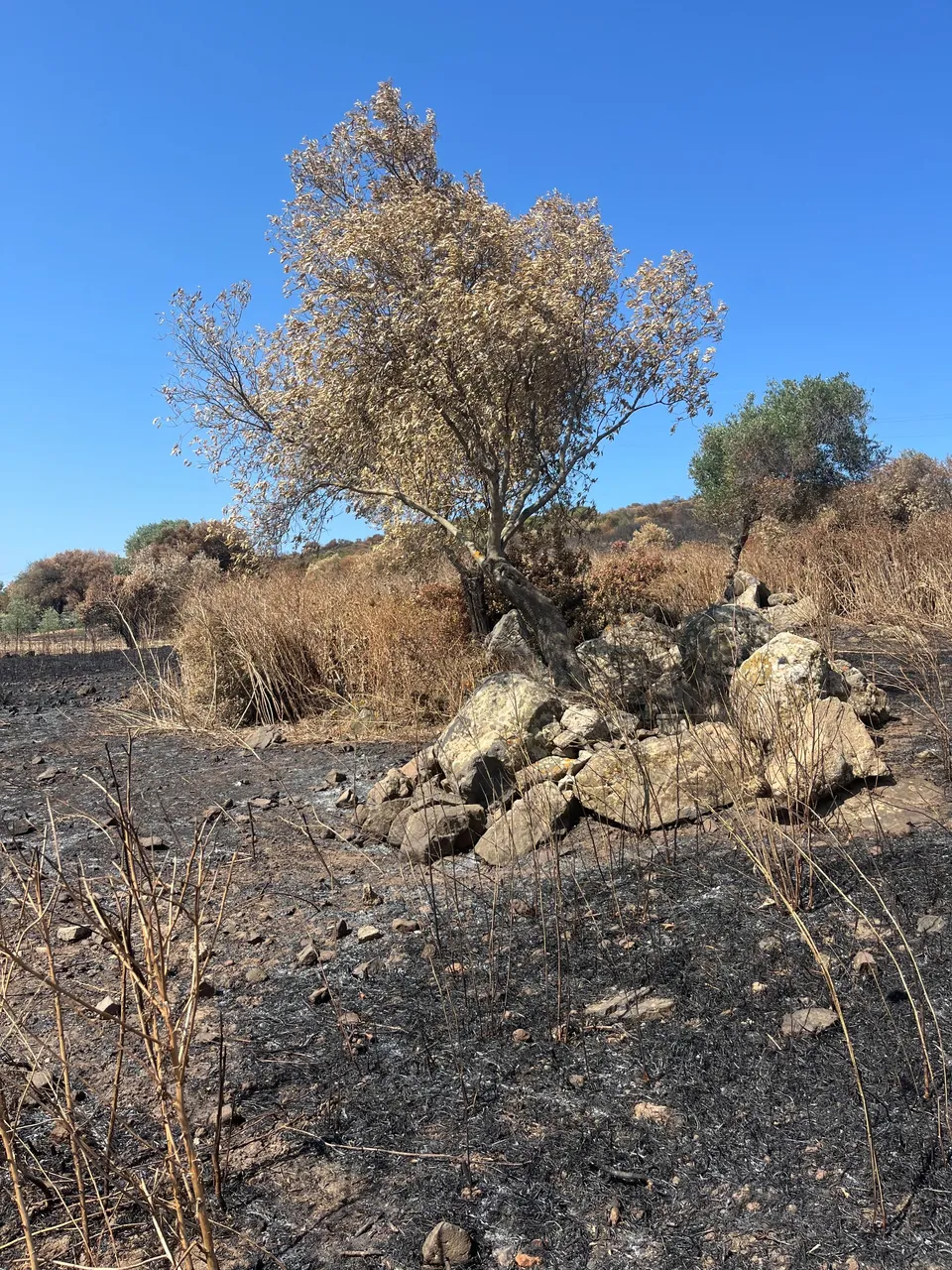
I’ll leave you with a few more images of the devastating fire that struck us this weekend. Saturday especially was a terrible day. The flames ravaged the outskirts of the city of Carbonia — I’m showing some screenshots of the videos I shot when I arrived there with my camera to start my work.

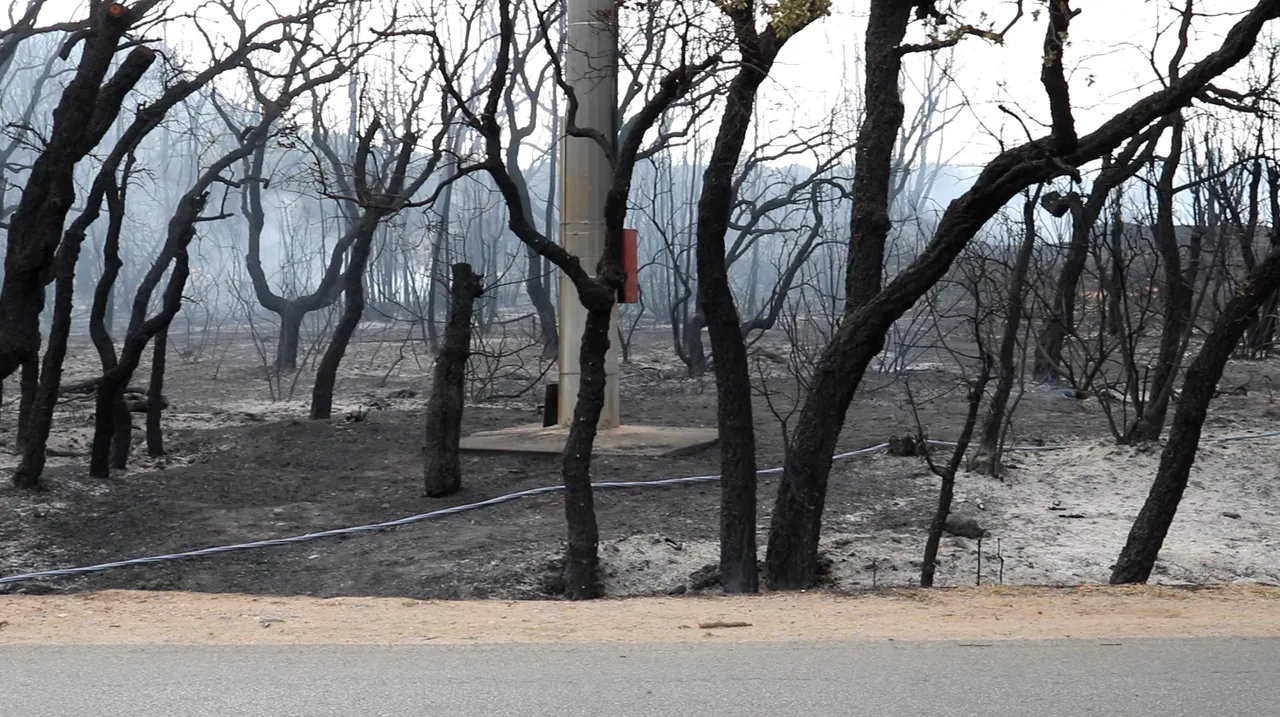
Seems like a kind of autumn has arrived, but it is an unfair autumn, one that has struck only certain trees according to its whim, and spared the others.
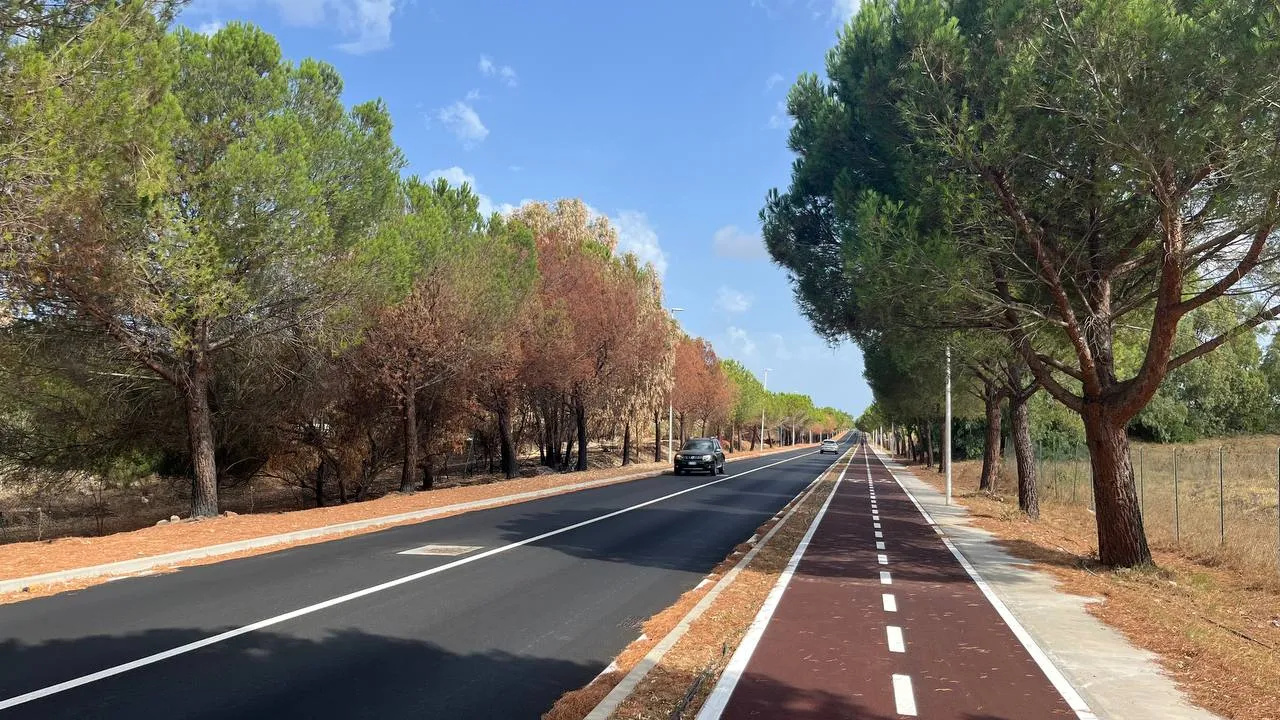
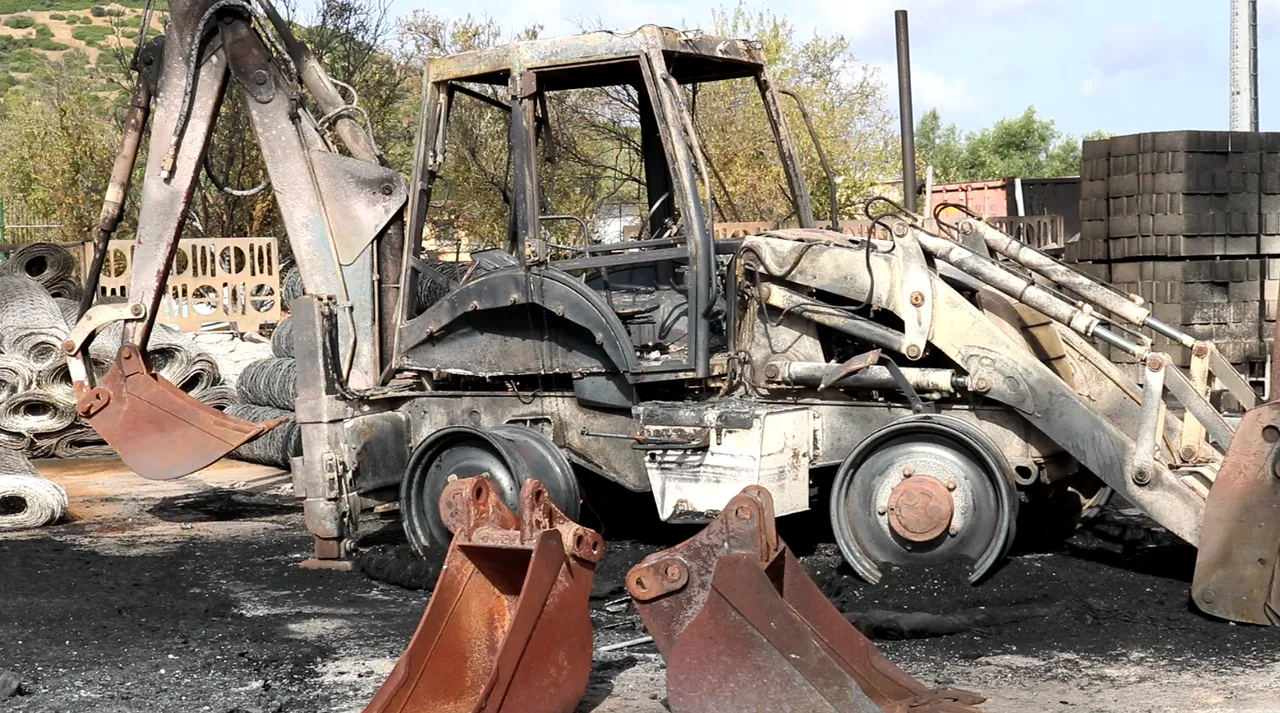
We narrowly avoided a tragedy when the flames reached a gas station: it was saved by a miracle, or the contact of fire with the fuel would have caused an explosion of unimaginable proportions.
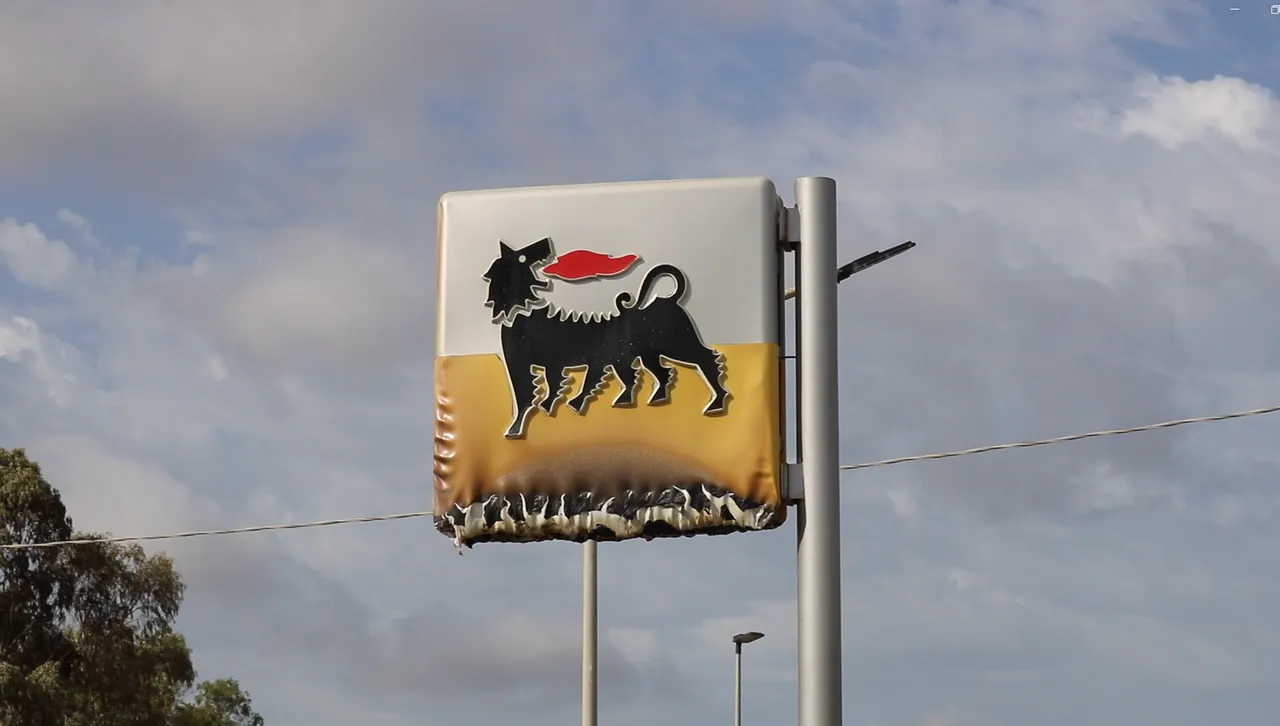
In my village, however, the fire affected another part of the hill that had already been burned in June. A wonderful place where I loved to go with my bicycle because, besides a century-old pristine Mediterranean scrubland, which unfortunately is now lost, there is also a beautiful Nuragic necropolis that is 3500 years old. It’s a place where I find peace and a primordial energy that makes me feel rejuvenated.
The necropolis remained intact; only the vegetation was burned, but it was still tragic for me to see this area reduced to this state.
Is Loccis Santus, the necropolis.
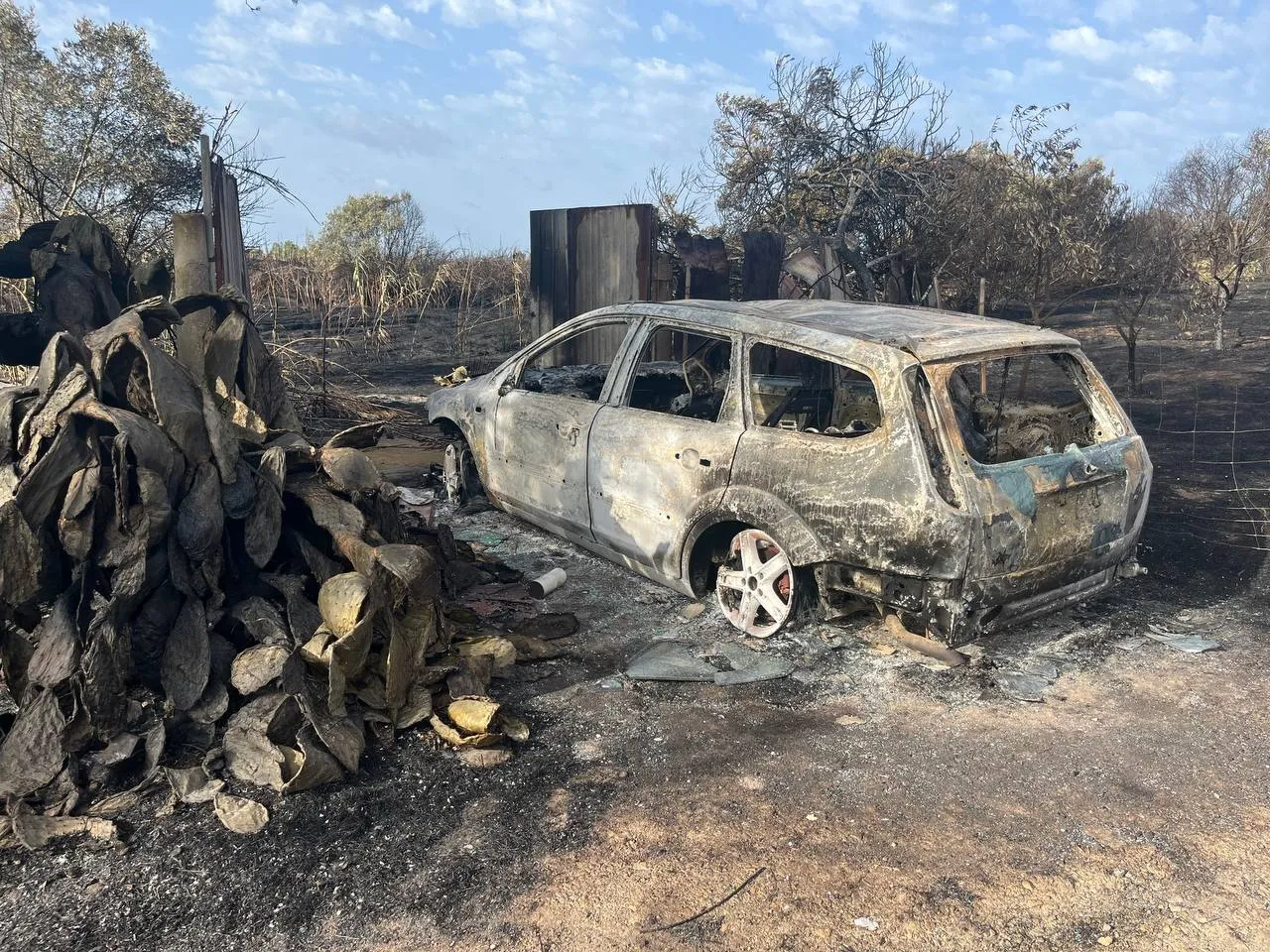

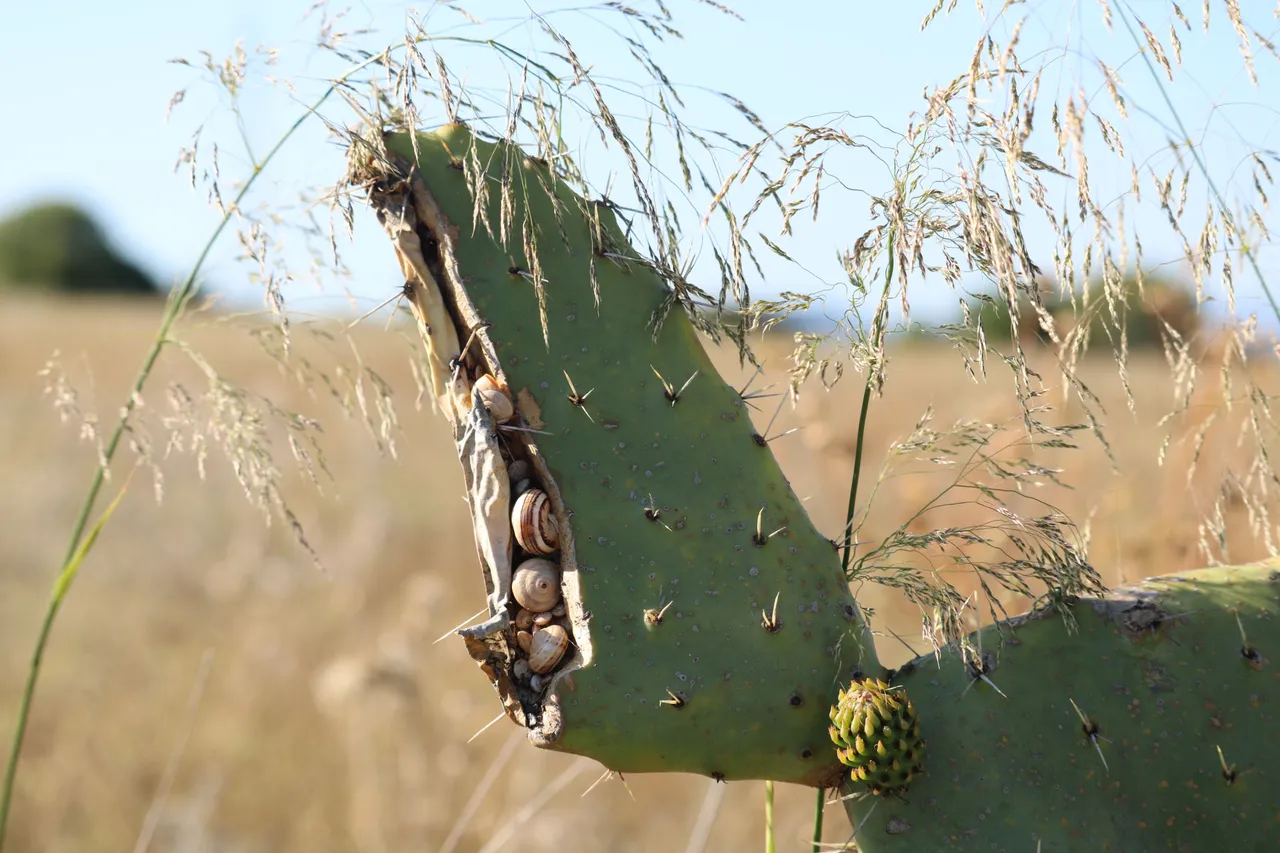
Just recently, I had discovered that hundreds of snails had made their nests inside the prickly pears, probably to stay safe and keep hydrated in the summer heat. The fire, which burned the prickly pears, left them no escape... and seeing them here, still attached to the branches, moved me deeply.
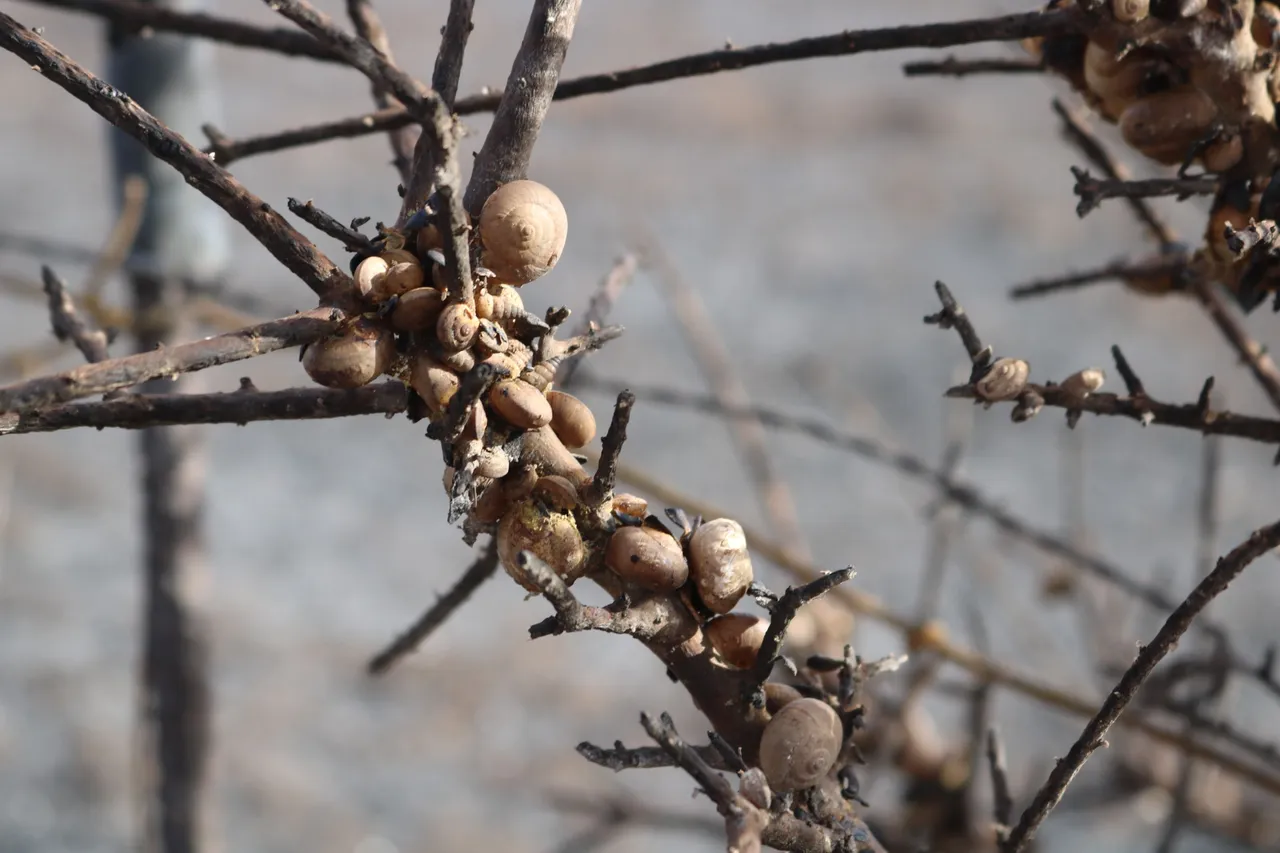
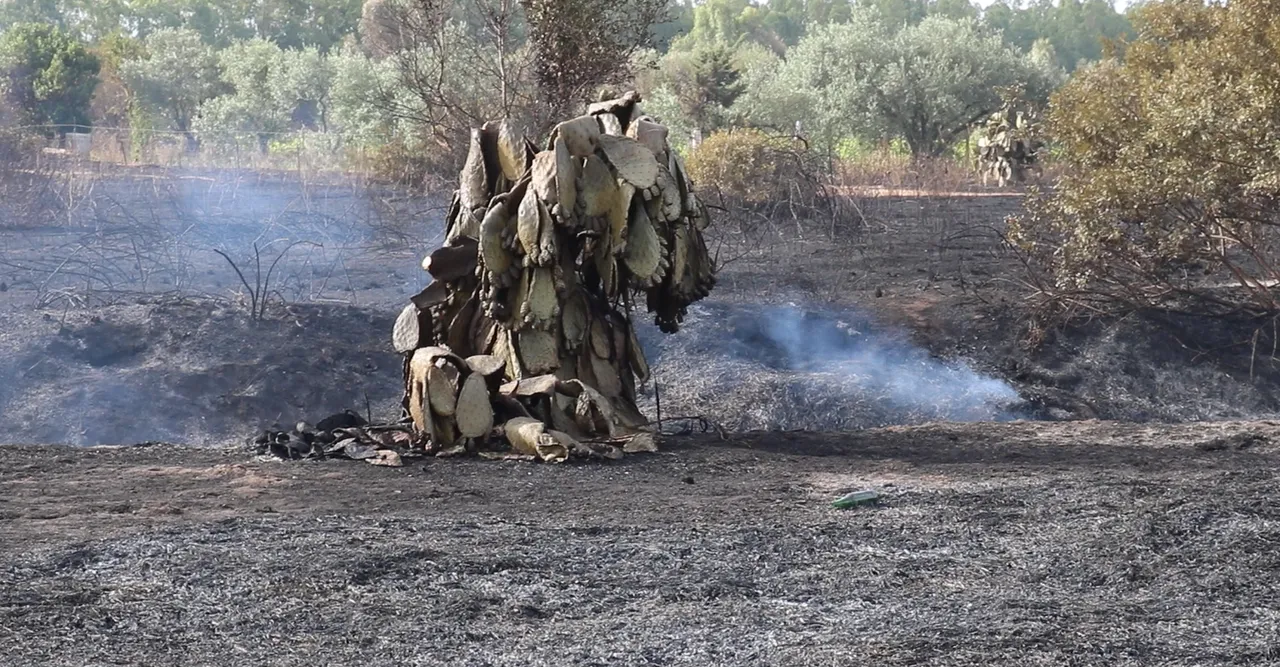
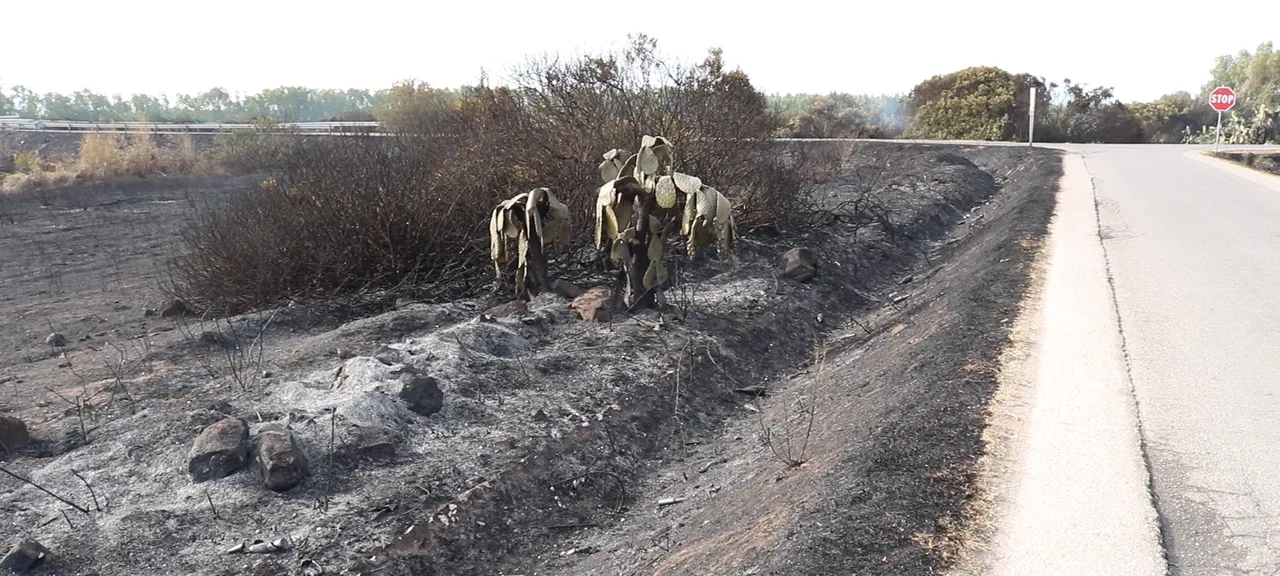
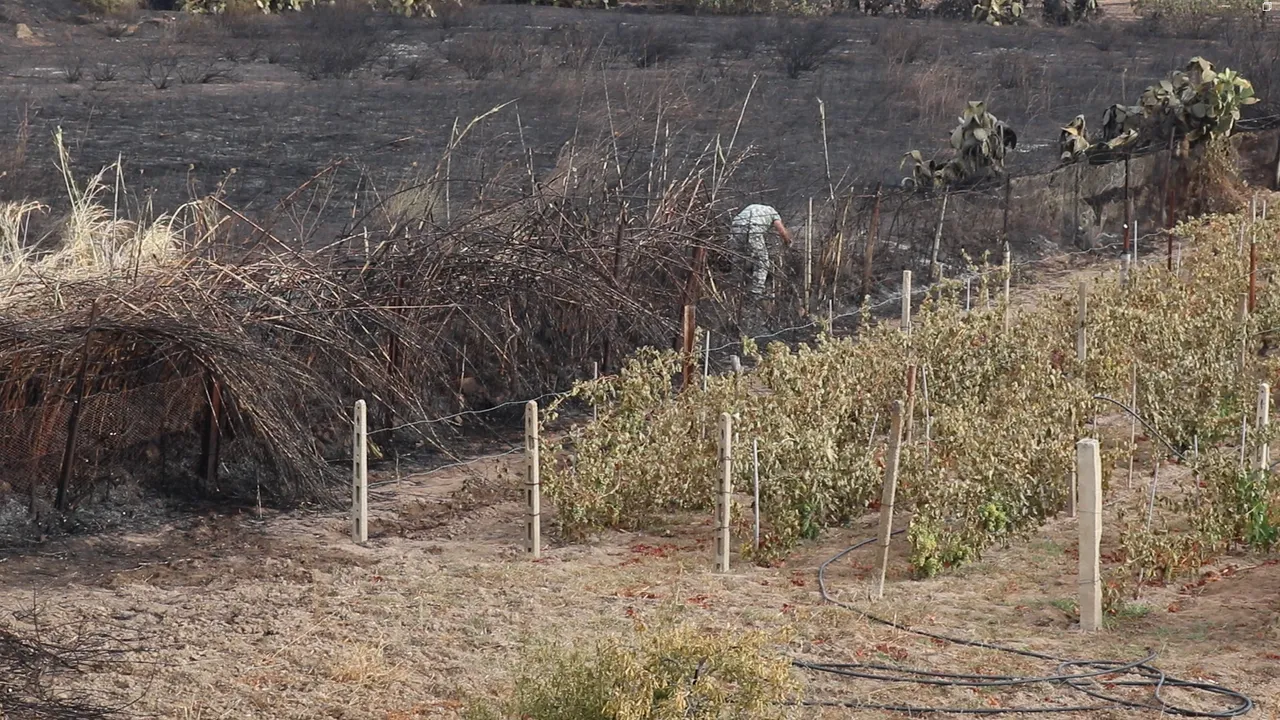
And to think that this happens because of the malice and incivility of someone — someone clearly suffering from an undiagnosed mental illness — is truly unacceptable.
And when evening falls, it is no longer a typical summer evening, beautiful and happy like youth; it is a beauty veiled in melancholy that cannot be explained, as if the countryside itself were retreating to weep for the millions and millions of lives cut short.
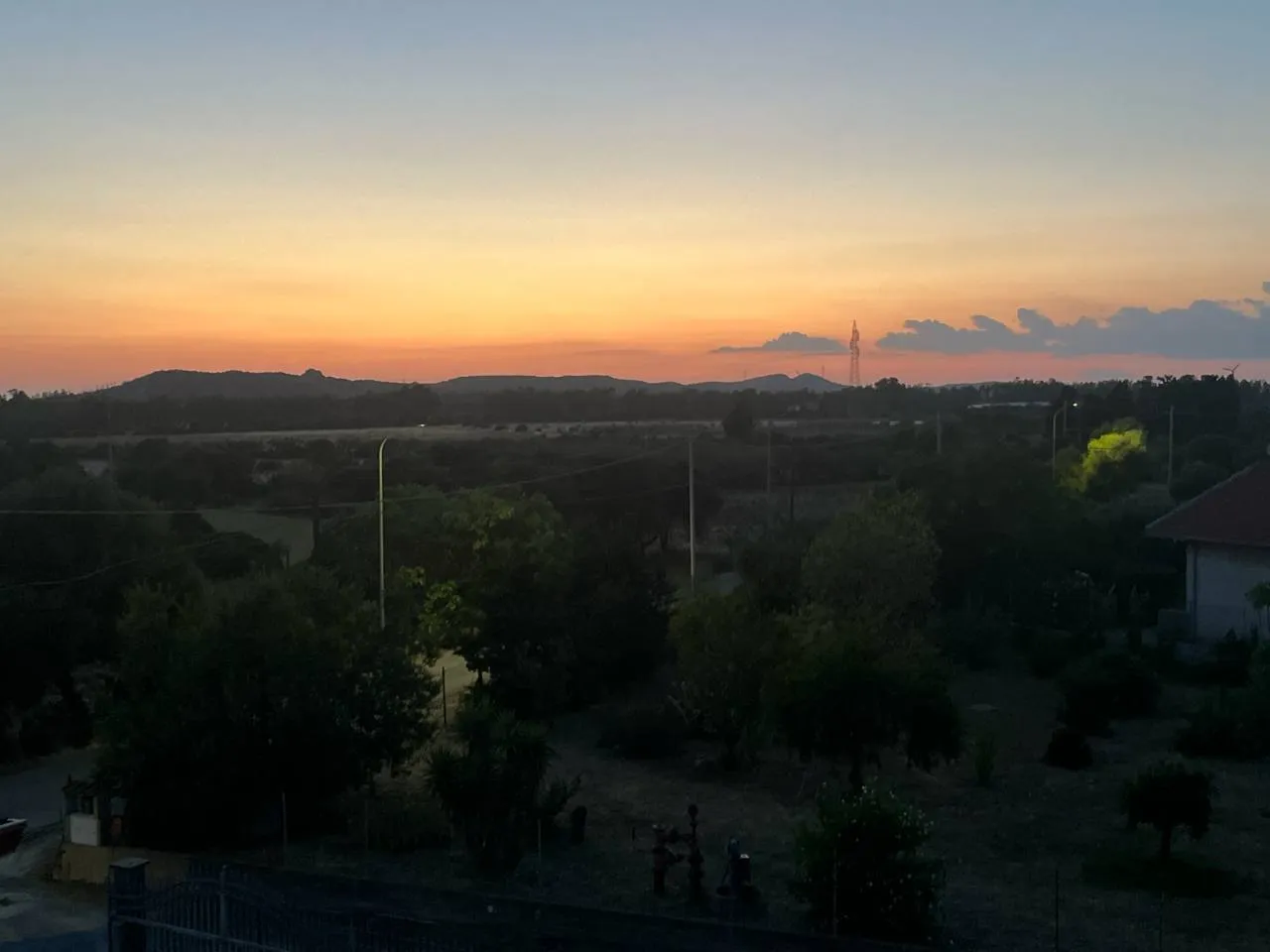
I’m so exhausted and sad that I don’t even want to search for a moral in what I’ve told you. Each of you can draw the conclusion they prefer; I mainly wanted to gather my thoughts and emotions, and I hope I’ve provided you with interesting, different content, because it’s truly personal and painful.
I love you all,
*@Alessandro
[//]:# ([//]:# (!worldmappin 39.16366 lat 8.52368 long d3scr))
